#but the oldest i have is from like 1916
Explore tagged Tumblr posts
Text
A moment of appreciation for this old book i picked up from the thrift store with a rather... interesting title.

No printing date, but there is a sticker in the front that gives the context that it was awarded to a student in 1937:

#sittinginthewoodsrn posts#this isnt my oldest book#i wish i could stumble across one from the 1800s#but the oldest i have is from like 1916
1 note
·
View note
Text
Jewish American Heritage Month
May is Jewish American Heritage Month, there's no way I can make a post to highlight ALL the ways Jewish Americans have contributed to American life, culture, politics and History but here are a few
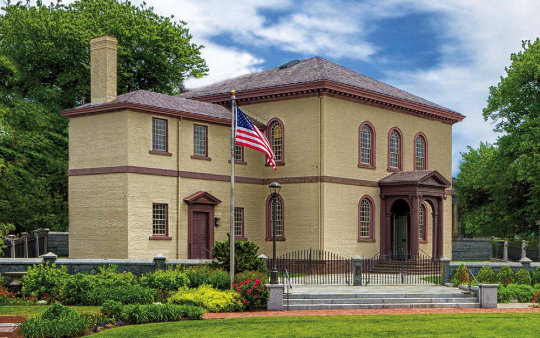
The Touro Synagogue in Newport Rhode Island is the oldest Synagogue in the United States, built in 1763 for a congregation that dates back to 1658 when 15 Sephardic families moved to America. Touro is also famous for a letter sent to them by President George Washington in 1790 where he assured them of freedom of religion in the new United States:
... the Government of the United States ... gives to bigotry no sanction, to persecution no assistance. ... May the children of the Stock of Abraham, who dwell in this land, continue to merit and enjoy the good will of the other Inhabitants; while every one shall sit in safety under his own vine and fig tree, and there shall be none to make him afraid. May the father of all mercies scatter light and not darkness in our paths, and make us all in our several vocations useful here, and in his own due time and way everlastingly happy.
- Letter of George Washington to the Hebrew Congregation in Newport, Rhode Island
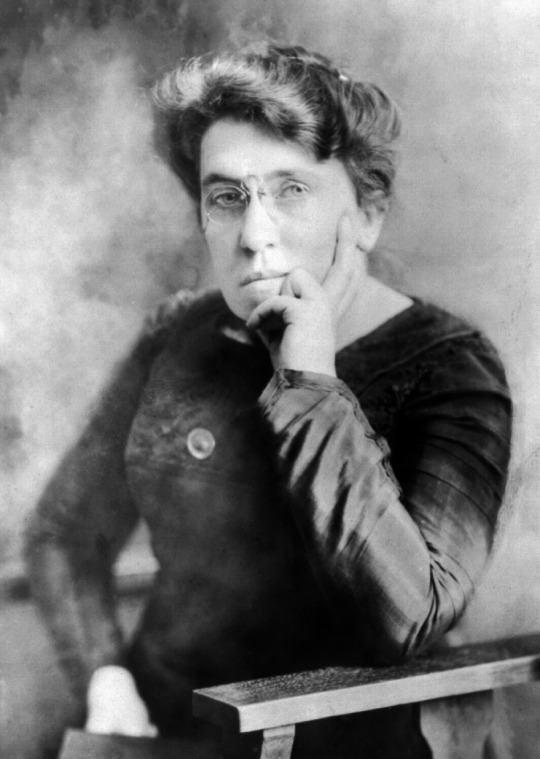
Emma Goldman (1869-1940) Born in what is today Lithuania Goldman immigrated to the United States at the age of 16. She would become in the 1890s one of the leading voices of the anarchist movement and remains one of Anarchisms most important thinkers. Goldman also spoke out and was arrested for supporting birth control at a time when it was illegal. She supported Free Love and even gay rights before the dawn of the 20th Century making her the only major figure of her time to speak out in favor of homosexual love.
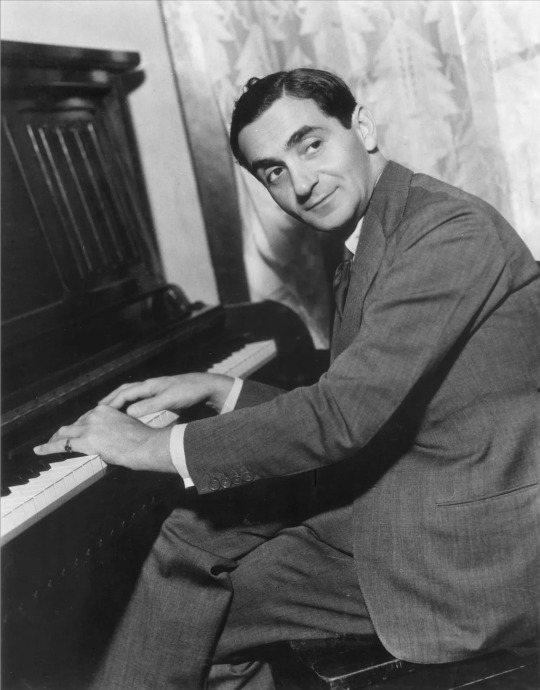
Irving Berlin (1888-1989) Born in what is today central Russia, the Berlin family immigrated to America when Irving was 5 years old. Starting with 1911's "Alexander's Ragtime Band" Berlin would go on to write upwards of 1,500 songs over his 60 year music career. He wrote the scores for 20 Broadway shows, 15 Hollywood movies, was nominated for 8 Oscars and had 25 number one songs on the charts. His most famous songs include, Puttin' on the Ritz, Cheek to Cheek, White Christmas, Anything You Can Do (I Can Do Better), and There's No Business Like Show Business. Fellow Jewish composer George Gershwin (1898-1937) declared Berlin "the greatest songwriter that has ever lived"
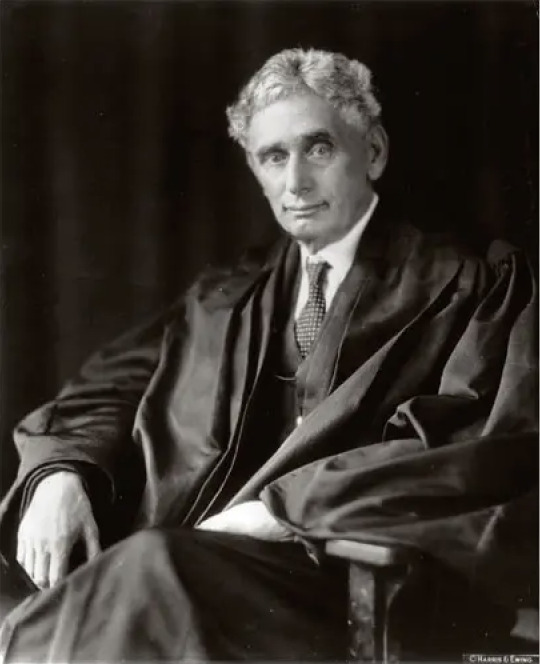
Louis Brandeis (1856-1941) A towering legal mind Brandeis would in the early 1900s earn the nickname "The People's Lawyer" for refusing payment in cases for "the public interest" Brandeis fought many antitrust cases in court and fought businesses in court in support of early work place safety laws. Brandeis was also the first to articulate the idea of a Right to Privacy in 1890. Brandeis idea would become the basis of rulings supporting the right to birth control, abortion, and gay rights. Nominated to the Supreme Court in 1916 Brandeis was the first Jewish Justice and was vehemently opposed by antisemites. Fellow Justice James Clark McReynolds refused to speak to Brandeis for years, never signed his name to opinions written by Brandeis, and would often openly start reading a news paper when Brandeis read his opinions from the bench. McReynolds, along with Justices Pierce Butler and Willis Van Devanter sent a letter to President Hoover begging him to not "afflict the Court with another Jew" when he appointed the second Jewish Justice, Benjamin Cardozo, in 1932. Brandeis served 23 years on the Court from 1916 till 1939 and is regularly counted as one of the greatest Justices to ever serve championing Free Speech and progressive policies often from opposition to the Conservative majority of the time.
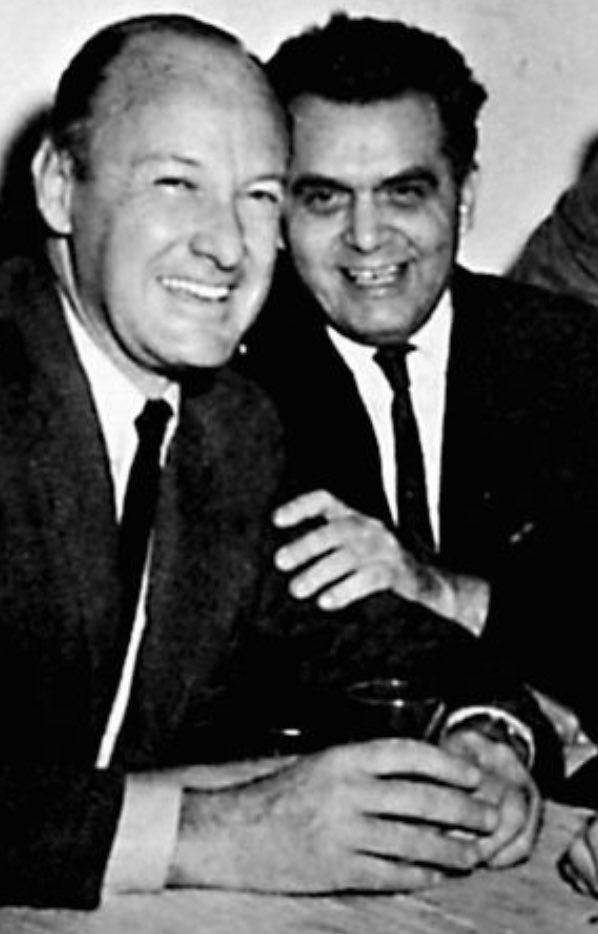
Stan Lee (1922-2018) and Jack Kirby (1917-1994) Born Stanley Lieber and Jacob Kurtzberg respectively, Lee and Kirby were among countless Jews who adopted less Jewish sounding names in hopes of escaping discrimination. Lee and Kirby along with countless other Jewish artists and writers formed the backbone of the Golden and Sliver ages of comics. Characters such as Batman and Superman had Jewish creators. Kirby and Lee themselves are responsible for such cultural icons as Captain America, Thor, Hulk, Fantastic Four, Spider-Man, Iron Man, Black Panther, Daredevil, and The X-Men. The preponderance of Jews in the early comics was a result of persistent discrimination against Jews. High class advertising agencies didn't want Jewish artists drawing their ads and literary magazines like The New Yorker weren't interested in Jewish staff writers. So young Jewish artists and writers found themselves in the "less respectable" world of pulp and penny comics where they made a huge cultural impact though many, like Kirby, would fight for years to get the money they deserved and many never did.
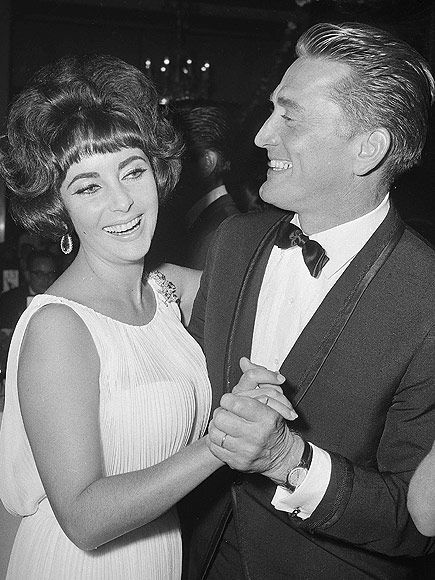
Elizabeth Taylor (1932-2011) Kirk Douglas (1916-2020) Douglas was born "Issur Danielovitch" but changed his overly Jewish sounding name to make it in the Hollywood of the 1940s and 50s. regarded as one of the greats of classic Hollywood Douglas would be nominated for Oscar for Best Actor 3 times, for Champion (1949), The Bad and the Beautiful (1952) and Lust for Life (1956). He is most well known for his work with Jewish filmmaker Stanley Kubrick (1928-1999) who's first two major films Paths of Glory (1957) and Spartacus (1960) starred Douglas who was also a producer, they are still thought of as some of the best films ever made. Kirk Douglas is also the father of actor Michael Douglas(1944-) Elizabeth Taylor was an iconic star of the Golden Age of Hollywood. Best known for Cleopatra (1961), Who's Afraid of Virginia Woolf? (1966) and The Taming of the Shrew (1967). Taylor converted to Judaism in 1959. An iconic beauty, Taylor was married 8 times to 7 different men (she divorced and remarried and divorced again many time co-star Richard Burton) including to the heir of the Hilton fortune and a US Senator. In the 1980s she would become one of the leading celebrities speaking out and raising money to fight AIDS at a time when fellow Hollywood Star, President Reagan, refused to even say the word in public.
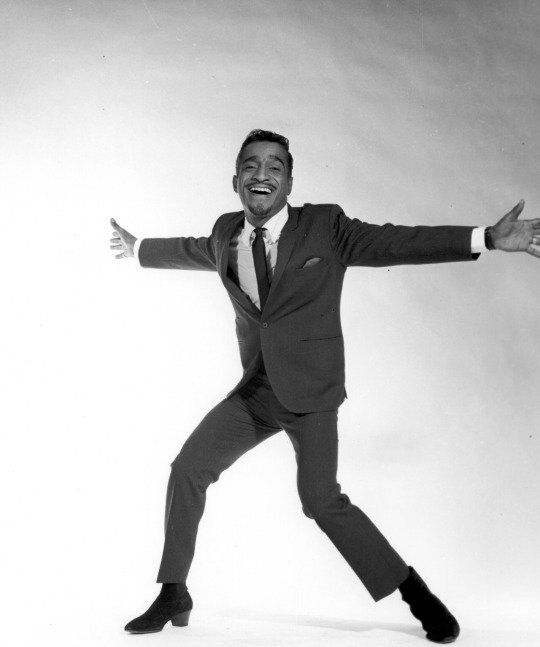
Sammy Davis Jr. (1925-1990) A singer, dancer, performer and actor Davis was one of the most popular acts of the 1950s and 60s. Well known for performing with Dean Martin and Frank Sinatra in what was known as the Rat Pack. Davis would star along side Martin and Sinatra in Ocean's 11 (1960) as well as other Rat Pack films. In the 1980s he toured with Sinatra and Liza Minnelli. Davis was politically active and influential using his fame to push Presidents Kennedy and Nixon on civil rights. Davis' cross over popularity and being booked to co-star with white acts helped break down the color barrier and push integration. After a nearly fatal car accident in which Davis lost his left eye (he wore a glass eye for the rest of his life) in 1954 he began his path to conversion formally converting to Judaism in 1961.
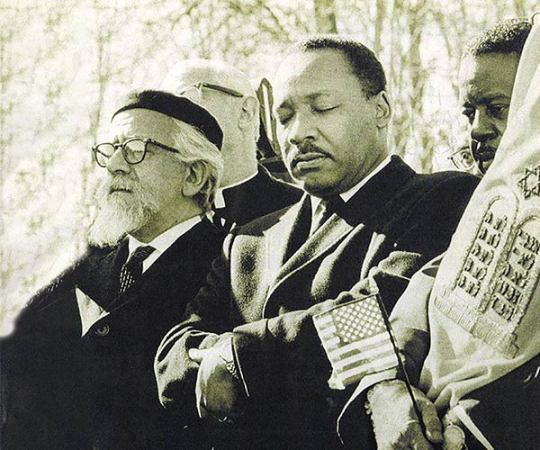
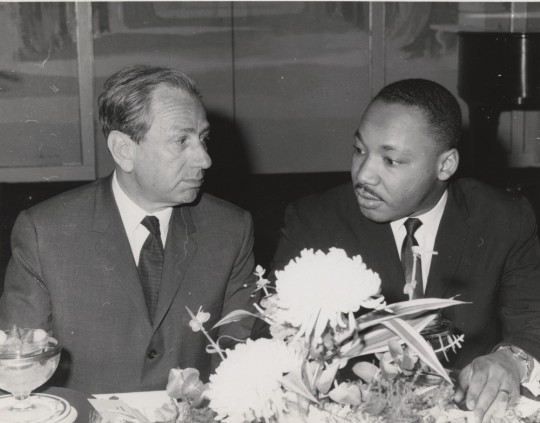
Rabbi Abraham Joshua Heschel (1907-1972) with Dr. Martin Luther King Jr. and Rabbi Joachim Prinz (1902-1988) with King. Both Heschel and Prinz were Rabbis in Europe before WWII, Prinz in particular had served as a Rabbi in Berlin in the 1930s and was expelled from Germany by the Nazis in 1937 for embarrassing them internationally. Both men settled in the United States after leaving Europe and would become leading lights of American Jewish community. Prinz would serve as the President of the American Jewish Congress from 1958 till 1966, he would help create the Conference of Presidents of Major American Jewish Organizations in 1956 and be its President from 1965 till 1967. Heschel wrote a number of highly influential books such as Man Is Not Alone, God in Search of Man, The Sabbath, and The Prophets which are still widely read today. Both men felt called on by their experiences with the Nazis to become involved in the 1960s Civil Rights movement. Heschel was close personal friends with Dr. King and marched with him many times, most famously the 3rd Selma to Montgomery march between Dr King and John Lewis who'd been beaten badly at an earlier march. Prinz served as one of the organizing forces behind the 1963 March on Washington and Prinz gave the speech directly before Dr. King's famous "I Have a Dream" Speech. Heschel acted as a Jewish representative at the Catholic Church's Second Vatican Council where he was able to get the Church to drop centuries old antisemitic lines blaming the Jews for the death of Jesus from the liturgy.

Andrew Goodman (1943-1964), James Chaney (1943-1964), and Michael Schwerner (1939-1964) In the summer of 1964 The Congress for Racial Equality (CORE) launched a massive effort to register disenfranchised black voters in Mississippi to vote, they called the effort Freedom Summer. Goodman and Schwerner both natives of New York were among the hundreds of CORE volunteers from the North who came south to help local activists like Mississippi native Chaney with the registration drive. Many of the white northern volunteers, like Goodman and Schwerner were Jewish, Jews had also been heavily represented among the white Freedom Riders of 1961. On June 21, 1964 Goodman, Schwerner, and Chaney were pulled over together by a Deputy Sheriff before being set upon by a conspiracy of local KKK members. The 3 were murdered, and their bodies hidden in an earthen dam, there is some evidence that Goodman was still alive when he was buried. Their disappearance set off a massive FBI lead search known as Mississippi Burning. Public outrage particularly fueled by the image of the 3 men's crying mother's arm in arm at Chaney's funeral would help push through the Civil Rights act of 1964.

Bob Dylan (1941-) Born Robert Zimmerman Dylan lead the American Folk revival of the early 1960s. His songs Blowin' in the Wind (1963) and The Times They Are a-Changin' (1964) became anthems of both the Civil Rights and Anti-War movements of the 1960s. His 1965 transition from Folk to Electric pushed Dylan to the forefront of late 1960s Rock and Roll. Dylan is often ranked as one of the most iconic artists of the 1960s ranked up along side the Beatles. His musical influence is massive and still felt today. In 2016 Dylan was awarded the Nobel Prize in Literature for "for having created new poetic expressions within the great American song tradition"

Mel Brooks (1926-) and Gene Wilder (1933-2016) born Melvin Kaminsky and Jerome Silberman respectively. Brooks is a comedic legend, writing and directing for film and stage. Brooks is one of only 18 people to complete the EGOT (Emmy, Grammy, Oscar, Tony Awards). Brooks collaborated with Wilder on a number of his most famous works, The Producers (1967), Blazing Saddles (1974), and Young Frankenstein (1974). Other works include History of the World, Part I (1981), Spaceballs (1987), and Robin Hood: Men in Tights (1993). Just this year at the age of 96 Brooks wrote and produced History of the World, Part II a TV series sequel to his 1981 film. Wilder worked closely with Brooks as well as with Richard Pryor. He had a star turn in Everything You Always Wanted to Know About Sex* (*But Were Afraid to Ask) (1972). Wilder is best known for his iconic role of Willy Wonka in 1971's Willy Wonka & the Chocolate Factory.

Gloria Steinem (1934-), Bella Abzug (1920-1998), Betty Friedan (1921-2006) with Congresswoman Shirley Chisholm (middle seated). Friedan's 1963 book The Feminine Mystique is widely understood as the spark that started Second Wave Feminism or "Women's liberation". In 1966 Friedan helped start and would be the first President of, National Organization for Women (NOW). NOW remains a major feminist and progressive political organization. Friedan left NOW in 1970 to focus on the fight to pass an equal rights amendment to the US constitution (ERA). Together with Steinem and Abzug Friedan formed the National Women's Political Caucus in 1971. She also helped found the National Association for the Repeal of Abortion Laws, known to say simply as "NARAL". Bella Abzug known as "Battling Bella" for her fire breathing progressivism was first elected to the US House in 1970. Her slogan was "This woman's place is in the House—the House of Representatives" a slogan that has been reused by many women candidates since. Abzug was an early pioneer of ecofeminism. She also was a leading figure in the movement to impeach Nixon. Abzug would be one of the first supporters of gay rights in Congress sponsoring the first federal gay rights bill in 1974. Steinem was an influential counter-culture journalist and speaker. Her feminist magazine Ms. served as a voice piece for the Feminist movement of the late 1960s and 1970s. Her connections to the counter culture and her youth caused Steinem to often times act as a bridge between the younger 1960s generation and older activists like Friedan. Steinem remains active in politics and feminism today in her 80s.
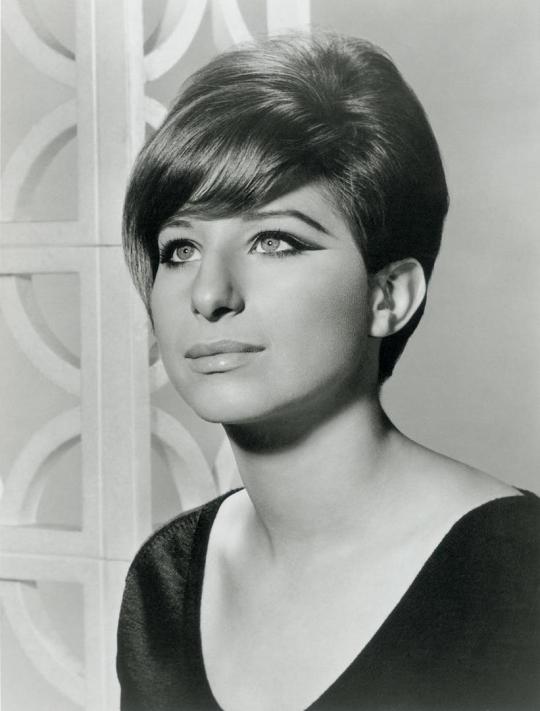
Barbra Streisand (1942-) an EGOT winning actress and singer. Streisand first came to national attention with chart topping hits in the 1960s. Across her career Streisand has had 11 number 1 records the most for a woman on the US charts. In the late 1960s Streisand transitioned to film, winning the Oscar for Best Actress for her first role, 1968's Funny Girl. She followed up with Hello, Dolly! (1969), What's Up Doc? (1972), and The Way We Were (1973) before winning her second Oscar this time for Best Original Song for A Star Is Born (1976) the first time a woman won composing Oscar. Streisand's first try at directing was the Jewish classic Yentl (1983) the first time a woman had written, produced, directed, and starred in a major studio film. She became the first and till 2020 only woman to win the Golden Globe for Best director for Yentl. Streisand has always been politically active from the Civil Rights and anti-War movements of the 1960s, feminism in the 1970s, and LGBT rights in the 2000s as well as being active in Democratic politics going back to the 1972 election.
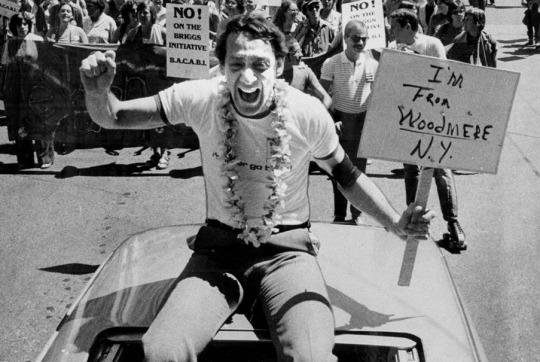
Harvey Milk (1930-1978) The first openly Gay man elected to public office in the United States. Originally from New York Milk moved to San Francisco in the early 1970s and settled in nascent gay neighborhood of The Castro. Milk's small business, Castro Camera soon become a hub of the community. Milk organized gay owned businesses and the local gay community to boycott homophobic businesses and support gay owned ones. He soon earned the nickname "Mayor of Castro Street" for his organizing and leadership of the gay community. He launched his first campaign for office, an election for San Francisco Board of Supervisors, in 1973. Despite being openly gay and sporting classic hippy long hair and a bread Milk swept the Castro and other liberal areas, however he fell short citywide. Milk would run again in 1975, and for State Assembly in 1976 getting closer each time till 1977 when San Francisco introduced districts and Milk won the Castro based District seat. Milk's election made him a national figure and the face for Gay Rights across the country. His brief time in office was consumed by the fight against the Briggs Initiative, a ballot initiative that would have automatically fired any gay teacher or teacher who supported gay rights in California. The Briggs Initiative failed, marking the first time gay rights had won at the ballot box. Harvey Milk and his ally Mayor George Moscone were assassinated on November 27, 1978 by disgruntled former Supervisor Dan White. The Police investigation of White, a former cop, was deeply failed and a straight jury sentenced him to just 5 years for the double murder. In the aftermath of the sentencing the gay community rioted in what is known as The White Night Riots. The gay political movement Milk built in San Francisco remains today with the LGBT community having a powerful voice in local politics.
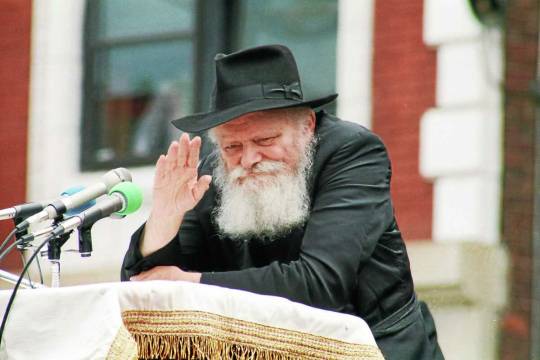
Rabbi Menachem Mendel Schneerson (1902-1994) Born in what is today Ukraine he fled Europe in 1941. In 1951 Schneerson succeed his Father-in-law as the 7th Rebbe of the Chabad-Lubavitch Movement. While all Hassidic movements have Rebbes, Schneerson would become such a towering figure both in Jewish life and outside it to this day nearly 30 years after his death he is still "The Rebbe". During his long reign as the Rebbe Schneerson transformed the Chabad movement into a global Jewish outreach organization. In many parts of the world Chabad houses operate as the sole outpost of Jewish life. It is not uncommon in heavily Jewish areas or events to find Chabadiks asking men if they're Jewish and have wrapped tefillin today. The Rebbe and his movement would be at the center of the 1980s struggle to liberate Soviet Jewry as well as efforts to evacuate Jewish youth from Iran in 1979. The Rebbe started a global Chanukah outreach campaign, trying to assure that individual Jews have their own menorah and candles as well as pushing for public lightings of display menorahs, if your city lights one it's likely a Chabad project. During his life time many of his followers came to believe that he was the awaited Jewish Messiah. After his death the Chabad movement has not elected another Rebbe to replace him and likely never will. His grave in Queens is a major pilgrimage sight not only for Hassidic Jews but seekers of all kinds, Jewish and not. Ever since 1978 Schneerson's birth has been marked in the US by an act of Congress and Presidential decree by every President since Carter as "Education Day" focusing on his life long work for education and learning.

Ruth Bader Ginsburg (1933-2020) The Second woman to serve on the United States Supreme Court. Ginsburg entered law in the 1950s at a time when very few women did, her Harvard Law Class had 500 men and just 9 women. She graduated first from Columbia. She was denied a Supreme Court Clerkship because of her gender. In 1972 Ginsburg organized and became the head of the Women's Rights Project at the American Civil Liberties Union. By 1974 the Project had been involved with 300 gender discrimination cases. As general counsel of the project Ginsburg would argue 6 gender discrimination cases before the Supreme Court between 1973 and 1976, winning 5. She was often compared to Thurgood Marshall in her role fighting for women's rights in Court. She would keep working with the ACLU till 1980 when she was appointed to the US Court of Appeals, Second Circuit by President Carter. She was appointed to the Supreme Court by President Clinton in 1993, as only the second women and the first Jewish woman to serve, she is the longest serving Jewish Justice. Ginsburg was allied with the liberal wing of the Court through out her time on the bench. After Justice O'Connor retired and Ginsburg found herself in the unexpected position as the only woman on the court from 2006 till Justice Sotomayor joined in 2009 she became more outspoken. Ginsburg would become known for her powerful dissents often read from the bench. After Justice Stevens retired in 2010 Ginsburg became the de facto head of the liberal wing of the Court and soon reached cultural icon status with the wider American public.
-----------------
These are just a few of the hugely important Jewish Americans who have impacted and shaped every part of American life and the list if not random is just who I thought of, there were many others I thought about but decided I didn't have room for. Have a good Jewish American Heritage Month this May and learn some Jewish History
569 notes
·
View notes
Note
❛ it would have been better to die. ❜
WHOO BOY HERE WE GO KRIS, have some midnight angst cw: mentions of torture, blood mention
--------------------------------------- Dream cradles Hob’s broken body in his arms. It is his fault this has happened. The spell Roderick Burgess performed had been meant to capture an Endless, had meant to capture Death, or even Dream himself, but instead, the trap took hold of his oldest friend.
His friend. How foolish it is now, to realize he cares so much for Hob Gadling, while the man bleeds out on the Burgess’s basement floor.
He could have prevented this, Dream thinks. He could have stopped this as it happened, if only he’d thought to pay attention.
But Dream’s arrogance has cost him once more. After their fight in 1889, Dream had withheld himself from Hob’s dreams, had not even bothered to check to see that the immortal still visited his realm night to night. Which of course, he hadn’t after his capture in 1916. But Dream had washed himself of Hob by then, had resolved he would not address the matter on their next meeting, that a hundred years of silence would be enough to relieve Hob of his foolish notion to consider them friends.
And then, Hob did not appear in 1989.
Dream had thought himself stood up. He raged once returned to his realm from the Waking World, feeling every bit the fool for waiting. The Dreaming was clouded with storms and fire for days after, and not even Lucienne would try to go near him in the throne room.
It was only when, in his anger, Dream sent a nightmare to haunt Hob’s dreams that he realized something was amiss.
The nightmare had returned, shaking and terrified, and reported it had been unable to perform its function. Because Hob Gadling had not been seen in the realm in almost 70 years.
Dream had set out to find Hob then. Had hired the services of one Johanna Constantine, who like her ancestors before her, performed her job brilliantly and had triangulated Hob’s location within days.
“I don’t like this,” Johanna had said as they descended the stairs of the Burgess estate together. “Something’s not right. Something smells wrong here.”
She was right.
Roderick Burgess and his followers had all desired one thing: immortality. And what better way to gain immortality, they thought, with their stupid, simple human minds, than to cut it out of another immortal?
Dream glances at the unconscious bodies of the Order of Ancient Mysteries, and resolves to curse them with all manner of nightmare, waking and dreaming. They will never know peace for the rest of their pathetic short lives.
But then Hob is gasping in his arms, finally conscious, and Dream shoves all thoughts of revenge to the back of his mind as he tries to stall the bleeding.
“You are safe now, Hob Gadling,” Dream murmurs, trying to be as quiet and gentle as possible. “Your captors have been punished for their hubris,” he promises.
Hob coughs, and blood gurgles from his mouth. Dream wipes it with his sleeve, willing the fluid to disappear as quickly as it appeared. He inhales as deeply as his lungs finally regain their function, and it is only then that he truly sees Dream.
“It would have been better to die,” Hob rasps, his vocal chords hoarse from disuse, “than live as I did, chained down here for so long.”
Dream stutters and despite himself, his whole body begins to shake. He cannot believe what he is hearing. Hob has not once wished for his sister’s gift in all the centuries they have met with one another, had not even given the slightest inclination that he had grown weary of living. Even at his lowest point in 1689, destitute and with no prospects, Hob’s expression had shone with endless hope and vitality for life.
Now there is no hope left in Hob’s eyes.
Could Dream let him go like this? When he had just realized how much Hob means to him? How much he loves him? Was there nothing he could do to convince Hob to continue, despite the unforgivable atrocities committed against his person?
But that has never been Dream’s choice to make.
“So do you no longer wish to live?” Dream asks, voice steady, even as his heart is breaking.
Hob stares up at Dream, eyes resolute, and opens his mouth to speak.
--------
Part 2 Here or Read on AO3
Send Me An Angst Prompt💔
#dreamling#dream x hob#hob x morpheus#sandman fanfic#seiya writes#seiya drabbles#whew lord there is something in the air tonight because the fandom is full of ANGST#angst prompts#these are exciting keep them coming#I have at least one more sitting in my inbox I'm excited to get to#seiya writes dreamling
212 notes
·
View notes
Text
The Long Wait (Season 3) Chapter 9
Cold Blooded
Fandom: Grimm
Pairing: Sean Renard/OFC
The Long Wait Masterlist

Lorelei walked out of her first exam, feeling a sense of relief. Thankfully her pregnancy brain had not impacted her ability to complete the exam successfully. She had a few days before her next exam, but she was feeling pretty confident. So confident in fact, that when Monroe called inviting her over for dinner, she had agreed. She couldn’t be all work and no play. Lorelei arrived home, deciding to take a nap before she headed over Monroe and Rosalee’s. She still hadn’t received word from Sean, but that was to be expected. It still made her feel uneasy, however. She didn’t know where he was or what he was doing. However, he had at least been honest with her about that, instead of coming up with some bogus reason, and she appreciated that.
After her nap, Lorelei pulled on one of her looser pre-pregnancy dresses, which was now a little tight, grabbed her things and headed to Monroe and Rosalee’s. As Lorelei was getting out of her car, she saw Juliette’s pull up. This was a pleasant surprise. “Hi! I feel like I haven’t seen you in ages.” Juliette said, a bright smile on her face as she hugged Lorelei. “How’d your first exam go? Did your baby brain make it hard?”
“It went pretty well. Thankfully my head was nice and clear. Although I am a bit congested, which I’ve read is normal for this part of the pregnancy.” Lorelei said as the pair headed for the front door. “I didn’t know you were coming. It’s good to see you.”
Rosalee let them inside. As soon as Lorelei stepped into the light, Juliette squealed. “Oh, you’ve popped.” She said, referring to Lorelei’s bump.
Lorelei’s hand went to her bump. “I have. And my belly button has gone from an innie to an outie. The downside is that I can’t put off buying new clothes anymore. This dress, used to be loose. Not anymore.”
“Are you free on Saturday? We could do a shopping trip, get lunch and celebrate the end of semester?” Juliette suggested.
“Sounds great.”
Juliette looked at Rosalee. “You in Rosalee?”
“Count me in.”
Nick and Hank arrived not to long after that, a whole bunch of books from the trailer in tow. That was how Lorelei found out that they had weaselled a dinner invite out of Monroe when they came looking for information earlier. So, in addition to dinner, they found themselves looking through books trying to help Nick and Hank out with their case. Rosalee and Juliette were on the couch, Nick and Monroe on chairs from the kitchen while Hank and Lorelei had co-opted the armchairs.
“This ones from London, 1916.” Rosalee said. “Having ventured further and further into the sewers, we were almost overcome by the fumes. It is easy to see why the gelumcaedus chose this place to live. Without the breathing apparatus, Anna invented, we could never have survived the fetid conditions.” She finished.
Juliette glanced over Rosalee’s shoulder. “Ooh, it looks like something out of a Jules Verne novel.” She commented, as Rosalee continued.
“We were finally confronted by the gelumcaedus beneath Farringdon Road. The gelumcaedus emerged from a dormant period. Common for them in which they would retreat into the hell holes they fashioned for themselves, living off their plunder.” Rosalee finished.
“I don’t think our guy is in dormant period.” Nick stated.
“I got something.” Monroe said. “Says gelumcaedus is one of the oldest known wesen, served in the Pretorian Guard, under Caligula’s reign, and they were hired to protect the newly built Aquaducts.”
“Probably why they like the storm drains.” Hank commented.
“Exactly.” Monroe said, his eyes still on his book. “It says when Rome fell, they retreated to the underground waterways to avoid execution.” He handed the book to Hank.
“Wait, hold on, there’s more here.” Juliette said. “I regret to inform that Reginald, one of our hunters we took with us, perished in the fight, his upper limbs torn from their sockets. Escaping this wesen’s grip is virtually impossible. As a result, I have procured a vambrace should I ever do battle with a gelumcaedus again.”
“What’s a vambrace?” Hank asked.
“This.” Juliette replied, turning the book around the show everyone else.
“Woah.” Hank said.
“I think we have one of those in the trailer.” Nick added and Lorelei hummed in agreement.
Hank looked at the both of them. “Well, of course you do.”
“I just didn’t know what it was for.” Nick told him.
“Well, now you do.”
“You can use it for more than the gelumcaedus.” Lorelei told him.
“I know.” Nick replied. “Anyway, if the kid and the sewer worker were killed by the gelumcaedus. He’s still gotta be down in the tunnels.”
Hank sighed. “We have to go back in.”
“And not as cops.”

Lorelei heard from Nick the day of her final exam, that he and Hank had tracked down the gelumcaedus. However, after arresting him, Hank was kidnapped, and they had come to learn that there were in fact three of them. Needless to say, her brother had won that particular battle, take out two of the brothers and kept the first one that had arrested. Probably would have been too hard to explain if they hadn’t.
As with her first exam, Lorelei was blessed not to be affected by her ‘baby brain’ and had in fact, finished with time to spare. Satisfied with her work, and having to wait until the time ended before she could leave, Lorelei rested her head in her arms on her desk. She must have drifted off to sleep, because she was awoken by one of her classmates when the exam time ended.
“I remember falling asleep everywhere.” Andrea said, smiling at Lorelei warmly as she stretched. She had given birth to her own daughter last summer. “A few of us are going to Mulligan’s to celebrate the end of exams. Do you want to come? You can’t drink but they do great mocktails.”
“Sure.” Lorelei said, as she packed up her things.
Less than an hour later, Lorelei was sitting with some of the girls she attended class with, a fruity mocktail in hand while they shared wings and discussed their plans for the summers. Two had internships, one was leaving the country to visit family, and Andrea, like Lorelei was having an uninteresting summer, just work. “What about you Lorelei?” Marina asked, taking a sip of her espresso martini.
Lorelei ran her hands over her belly. “It will be a quiet summer for me. I’ve had some issues with high blood pressure, so my doctor has me taking it easy. I’ll just be getting things ready for the baby. I’m finally caving in, going shopping for maternity clothes this Saturday with some friends.”
Andrea laughed. “Oh, I remember that. I held off because most of what I could find were so ugly and uncomfortable. I ended up buying some things online. You know I have a few things I could pass on to you. Saves you having to spend a lot on clothes.”
“That’d be great, thank you.”
Not long after that, Lorelei headed home for a well-deserved nap. She curled up on Sean’s side of the bed, inhaling the scent of his cologne as Molly and Daisy joined her. As she drifted off to sleep, she prayed that Sean would return to her soon.
Next Part
Taglist: @zoexme, @nu1freakshow, @star-yawnznn, @bella250
Banner by @cafekitsune
#grimm nbc#nbc grimm#sean renard#captain sean renard#nick burkhardt#lorelei burkhardt#original female character#rosalee calvert#monroe grimm#monroe#hank griffin#juliette silverton#sergeant wu#bud wurstner#adalind schade#sean renard/ofc#sean renard x ofc#sean renard/oc#sean renard x oc#sean renard/reader#sean renard x reader#fanfiction#grimm fanfiction#grimm nbc fanfiction#nbc grimm fanfiction#soulmates#soulmarks#the long wait#the long wait series#season 3
4 notes
·
View notes
Text
Me and the boys at 2am looking for a good translation

Perusing around the interwebs, as one does, I discovered that the 6 months ritual of Abramelin (The Book of The Sacred Magic of Abra=Melin, the Mage: As Delivered by Abraham the Jew Unto His Son Lamech: A Grimoire of The Fifteen Century, traslated to English by S. L. MacGregor-Mathers; 3rd edition, of 1948, consulted), and this without even mentioning the:
"number of days of fasting and preparation [being] commonly one month [...] [or, as in the Qabalah, when] we generally prepare ourselves forty days before" (p. xliv),
Or the other six months of preparation and study of the book itself, before coomencing the operation, that the author recommends—and, as the reader should know, the ritual is intended to, basically, invocate the person's Guardian Angel...
Well, it seems that the German version of the text, that is, the oldest one, says not 6, but 18 freaking months—at least.
Nevertheless, it was (probably) MacGregor-Mathers' translation that Crowley consulted when he undertook the operation, at the Boleskine house, in 1899. The history/legend goes that, only one month in, the ritual went wrong, as Crowley failed to bind the demons who were invocated as part of the operation, thus making the house haunted.

It is to be noted that the problem with the MacGregor-Mathers' translation is not him himself, but the version he used as base for the translation in the first place. He clearly states what are his sources.
As a little detour: the German manuscript date of just around the period The Lesser Key of Solomon was being compiled. The edition I know is by De Laurence, Scott & CO., 1916—but I do know there is one by Crowley and Mathers. Both, though, have the same Dedication, in Greek:

Unsurprisinly, the translation I dug for this is second-handed at best, but Mathers' name, 'the terrible Mathers', ΔΕΙΝΟΝ ΜΑΘΕΡΣ, seems to be mentioned under a curse. I am not familiar with their history, but I am curious to know where this is coming from, Crowley's reasons, or, even more generally, to know Mathers' reception of this. Did he even know?
Far from thinking it's the case, I find amusing to think it is revenge for 1899. More so considering that, but this I couldn't say myself, Crowley's Greek is sort of crude and misguided at times, while Mathers says, in the Abramelin edition I consulted, that:
"Unfortunately, like far too many modern Occultists, Abraham the Jew shows a marked intolerance of […] the use of any language but one's mother tongue, […] though on a more careful examination of the text I think we shall find that it is rather their abuse through ignorance [wouldn't that include Crowley's?] of their meaning which he intends to decry, than their intelligent and properly regulated use" (p. xxviii).
A comment on anything of anything of the aforementioned would be, of course, appreciated.
2 notes
·
View notes
Text

A Listening Ear (1.9k)
Written by @tea-withjamandbread ties in with @aesopsharpmybeloved’s series A New Chance At Life
Summary: After Theodore finds himself on the receiving end of a good dressing-down, he needs someone to talk to. Luckliy for him, his oldest brother is always there to lend a listening ear.
TW: Mention of stillbirth, a little sad so maybe grab tissues if you tend to need them…
December 20th, 1916
It was winter break and the Sharp children typically spent this time at home with their parents. This year, though, for the second Christmas in a row, they were one family member short, Magdala having made her way across the Atlantic to pursue her research.
Both parents had hoped that by now that the war raging on the continent would have died down, making international travel easier. Securing Magdala's visa for the United States of America had been quite the task, and while Aesop maintained a good relationship with the British ambassador to MACUSA, her visa only allowed her to enter the country one time. She couldn’t simply come and go as she pleased as she would during peacetime. Magdala wouldn't be joining her family until the war ended, unfortunately.
It seemed though that she was making the best out of the current situation, judging by the letters she sent back home. She had spent the bulk of her time tracking down and studying the Wampus Cat, native to the Appalachian Mountains. She appeared to have a healthy social life as well, having even, much to Aesop's chagrin and her mother's delight, fallen in love. A man from New York had caught her eye. He was currently apprenticing under Shikoba Wolfe, hoping to master the art of wandmaking himself. Their relationship was still in its early stages, but Maggie had mentioned on a few occasions how she was looking forward to introducing him to everyone once travel was possible.
"So much for wanting to wait a little bit before setting down"
"Aesop, relax it's not like she's engaged to the lad"
"She had better not get engaged before I get the chance to-"
"To what, Ace? Poison him?"
"I was going to say interrogate him, but poisoning him is a nice alternative"
"Darling this is Maggie we're talking about. She's got a good head on her shoulders. She wouldn't be talking about introductions if he wasn't the same. He's apprenticing to be a wandmaker. That's impressive! And quite a lucrative business, too once he gets started on his own."
"What are you saying"
"I'm saying we could do worse for a future son-in-law"
"As long as he keeps his 'wand' away from my daught-"
"Oh my aren't you the hypocrite Aesop Sharp!"
Eleazar had reached the home stretch of his studies at Hogwarts. He had taken on a respectable amount of NEWT classes, in addition to serving as Head Boy, and de-facto assistant to Hogwarts' potions master in the (quite limited) amount of free time he had. He himself was a few months into his first relationship, a lovely girl from his own house named Alice. He had developed a crush on her while in his sixth year and had only recently gathered the courage to ask her out after having helped her obtain certain potions ingredients she was missing for class over the fall.
Natalie was far too focused on her studies to even consider engaging in a romantic relationship, and already had such a hard time with letting her guard down that it would likely take quite some time for her to allow herself to trust someone enough before she gave them her heart. She didn't yet know what she wanted to do in life, so she knew she'd have to do well in her OWL's next year in order to keep all doors open for herself. She did have a small group of trusted friends, though, and her parents were quite happy to see her finally break out of her shell.
Then, there was Theodore. He didn't struggle in school per se, his grades were always among the very top of his class, but he had certainly spent a lot of time in detention over the past few months, which had earned him a good dressing down from his father earlier that day. In his parents’ eyes, he really seemed to show complete disregard for the school’s rules, and the boy had just been reminded that there was a reason in which they were in place, that he still needed to respect them even if he didn’t understand or agree with them, and even after he graduated and went out into the world, he couldn’t just recklessly do what he wanted.
Theodore knew his father had spoken to him from a place of deep love. He knew that of his four living children, he was the one that worried him the most, not just because of his preferred career path, but because he saw a lot of himself in his youngest son. He was desperate in wanting to make sure Theodore didn’t end up like he once was, and today his desperation had reached a boiling point.
Knowing where his words came from didn’t make them sting any less, though, and so once he had been dismissed by the former professor, Theodore donned his coat and scarf and ventured outside to the garden. It was a mild winter day and snow fell gently in large flakes, covering the ground in a soft white blanket. Theodore wiped the snow off the stone bench in the garden and took a seat, facing away from the house, the tears that had started to form in his eyes threatening to fall. He spoke to his older brother.
"I bet you heard all of that, didn't you… It's always rough, you know, being on the receiving end..."
Silence. Theodore took a shaky breath.
“I just… I know he’s right. I know I need to do better, to get in trouble less. I know it’s going to catch up with me eventually, like it did him all those years ago. I know he doesn’t want me to make the same mistakes he made… it’s just…” A gentle breeze blew and Theodore sighed
“I’m not… brilliant like Maggs. She just… picks up on everything real quick you know? Hardly makes any mistakes, makes everything look so easy! And she's been halfway around the world for over a year now doing her own thing and on the one hand I'm happy for her but on the other hand...I don't know when we'll get to see her again... And I didn’t inherit the potions gene like Eleazar did. He's pretty much set for life! Graduating from Hogwarts later this year and he's already got his career all sorted out. Heck, he had his apprenticeship all but secured before he even started school, it was always a question of "if he was interested" in joining the family business rather than "if he could earn it". Not that he doesn't deserve to apprentice under Dad, he'll probably end up at his skill level in a couple years at the rate he's going. Don't uhhh… don't tell Dad I said that."
Theodore blinked and looked ahead, continuing to bare his heart.
"And Natty… Did I tell you that she almost decapitated Professor Ronen the first time he had us play Summoner’s court? It was pretty brilliant, actually. She has to work to TONE DOWN her magic! The rest of us are just trying to keep up with her half the time. And she's got friends now, which is awesome but I keep worrying that she won't want to hang out with me anymore. Which is ridiculous really, I mean… I have friends and I still want to hang out with her, she's my twin!"
Snowflakes continued to fall and Theodore could hear faint music coming from the house behind him.
"Meanwhile, everyone tells me I’m so smart and talented and have such a bright future ahead of me but I just feel like… like I have to work twice as hard just to measure up to the rest of them and even then I fall short... So yeah, I sneak out after curfew and see what I can get away with. I see what I can do to help people while I’m at it. And you know what? I sometimes feel like it… like it actually helps me do better in school you know, like I’m finding some actual practical ways to use the stuff that I’m learning. Dad’s right though. It needs to stop. I need to do better from now on. I think… I think I can do it. I think I can keep myself in check, and start staying out of trouble.”
Theodore closed his eyes and took a deep breath. The smell of freshly baked cookies filled the air, he could hear the music, still. He could feel the snow landing on his hair and face as well as a single tear making its way out of his eye and onto his cheek. He didn’t hear his father open the door and walk towards him.
“Thanks, Clarence. You’re a really great listener. I know it’s strange to say I miss you, seeing as I never met you, but I… I really wish you were here. Say hi to Granddad for me. Tell him I'll try my best to do good by him. Tell him people are going to be proud of Theodore Sharp from now on, instead of hearing the name and instantly thinking 'what did he do to land himself in detention now?’”
Aesop sat next to his son and placed an arm around him, pulling him close. He looked at the stone in front of him. It didn’t mark the actual resting place of his own father as well as his stillborn son, but it was a place he, and the rest of his family, came to reflect and remember, whenever they needed it.
Theodore Sharp, 1820 - 1854
Clarence Aesop Sharp, March 26th, 1897
“How much did you hear?”
“Just your last sentence.” He kissed his son’s forehead as he felt his shoulder dampen slightly. Aesop glanced at the sky, snow falling in his face “He heard everything, though.”
Both sat in silence for a while, Aesop holding his son close, drawing circles with his thumb on his shoulder and gently humming so as to give Theodore some privacy as he sobbed. To anyone else who might have been looking on at the scene, it simply looked like a father comforting his son. However, everyone who shared their last name knew that there were three Sharps in the garden at that moment.
“Are those gingerbreads I smell?”
“Yes. They’re pretty good, too”
“They always are.”
Theodore stood up but Aesop stayed seated. “I’m already proud of you. I need you to know that.”
“Thanks, Dad. Thanks for always looking out for us”
Theo took a step towards the house but his father remained on the bench. “Aren’t you coming inside, too?”
“I’ll join you all in a couple minutes”
Theodore walked back towards his father and gave him a hug “Granddad would be proud of you, too. Just so you know”
“Thank you, son”
“I promise we won’t eat all the gingerbreads while you’re out”
Aeop chuckled “You better not”
Theodore gave his father one last squeeze before walking back towards the house, feeling lighter than he had when he had walked out. Some of his friends thought it was strange how he made a point to talk to his brother who had never taken his first breath, or remember the man he had never met but with whom he shared a name, but Theodore knew better. He had heard it often, from both his parents. Four words of wisdom that helped him through some of his most tumultuous days.
There is no without.
#hogwarts legacy#fanfiction#hogwarts legacy fanfiction#aesop sharp#Professor Sharp#original characters#magdala sharp#eleazar sharp#natalie sharp#theodore sharp#sharp family#tag: the sharp family#hurt/comfort#grieving#domestic fluff#some fluff#father and son
10 notes
·
View notes
Text
The Boundless Sea
Sydney
11 June 2023
We headed into Sydney at about 9am this morning with a fairly full raft of activities.
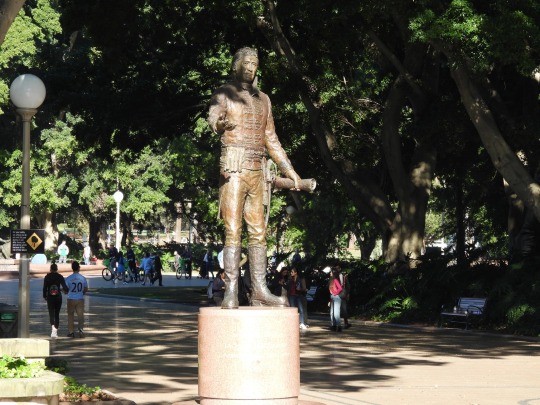
The first of these, which we arrived to at 10, was the Hyde Park Convict Barracks. This barracks was built by order of Governor Lachlan Macquarie in 1817, and today a statue of him stands across the road from the building, gesturing towards it. I can’t help but wonder if Macquarie would appreciate the somewhat dodgy statue of himself showing off the prison he built, but maybe that’s just me. Hyde Park Barracks is a thoroughly modern museum, in that it uses audio guides instead of placards. I generally can’t stand audio guides, but I soon worked out that I could just read the subtitles on the ipod thing they gave us, so it wasn’t a dealbreaker. The museum now includes a major focus on the effects of colonisation and the convict system on the indigenous peoples of New South Wales, which I quite appreciated. The one thing I might have liked more about was a little more information on the guards; but I appreciate that this is specifically a museum about the convicts, not the soldiers.
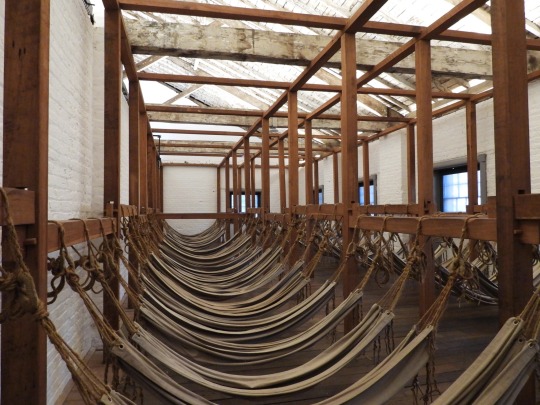
After the barracks, we walked through Hyde Park to the Anzac Memorial. This is Sydney and New South Wales’ primary war memorial, opened in the 1930s to commemorate the First World War. It’s not quite as grand as Melbourne’s Shrine of Remembrance - few things are - but it is still a magnificent structure and well worth a visit. The statue of the prostrate man in the Hall of Silence - positioned under the Hall of Memory, and visible through a hole in the floor which they call the Well of Contemplation - is particularly striking. Most war-related sculptures, at least in the post-WWI period, tend to be horizontal. Here, the prostrated man is vertical - the language of mourning.
Behind the Hall of Memory and down the stairs is the Hall of Service. The walls here are lined with soil samples from every town in New South Wales that has sent soldiers to war. There’s a circle on the floor, under a skylight, with more soil - these from the battlefields on which soldiers from New South Wales have fought. This goes as far back as the New Zealand Wars of the 1860s, but frontier conflict isn’t represented.
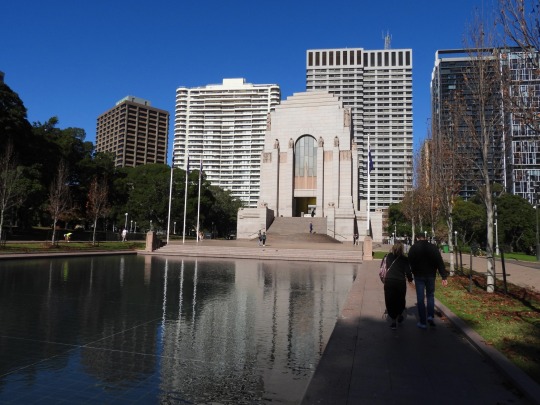
After visiting the Anzac Memorial, we proceeded by train to Circular Quay, and after stopping for a quick drink, caught the Manly Ferry out to Manly. This took us past the Martello tower at Fort Denison, upon which a young Charles Lightoller raised the Boer flag as a prank in the early 1900s, and the naval base at Garden Island. Both Canberra-class helicopter carriers were in port - these are the largest warships Australia has operated since the decommissioning of the carrier HMAS Melbourne. On the port side of the ferry, as one approaches the heads, the foremast of the cruiser HMAS Sydney (the first one) can be seen on the shore. To starboard, one can gaze out through the heads to the Pacific - from here, the sea is almost unbroken until you reach South America.
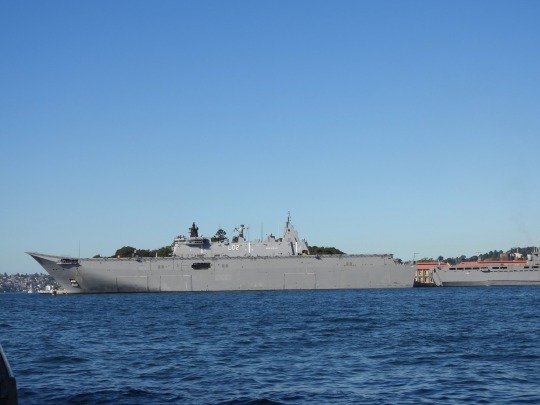
It is somewhere northeast of here that HMAS Australia lies on the seabed, decommissioned and scuttled under the terms of the Washington Naval Treaty. Australia was a battlecruiser - the same class as the unfortunate Indefatigable. She missed Jutland due to damage from a collision with the third member of the class, HMS New Zealand, and thus never saw a major combat action. Her existence, however, deterred German raiders from sailing too close to Australia during the war (although I’d argue that it was actually the entry of the Japanese into the war that really coerced the Germans into fleeing the Pacific altogether.)
We lunched in Manly, and I took a look at the war memorial there - possibly Australia’s oldest, erected before the war had even ended in 1916. I had a look at the beach, too, but it was absolutely packed. We caught the ferry back at around 3pm, and then returned to Hurstville by train.

The real journey begins tomorrow - we leave early for Sydney airport, and then we have the long, long flight via Bangkok to Heathrow. This will be a long undertaking, but I’m not certain there will be much to write about - but I shall make a valiant effort regardless.
#second world war#first world war#war#anzac memorial#sydney#hmas canberra#royal australian navy#convicts#cw colonialism
9 notes
·
View notes
Text
Mysteries Surrounding Lost Souls Along National Road in Ohio County

While growing up in the Triadelphia area I was always fascinated by many of the historical sites and buildings that I observed on my daily travels. Entering the town and seeing the welcome signs which announce Triadelphia as the oldest town in West Virginia always made my mind wonder what this area would have been like to live in over 200 years ago. Triadelphia was incorporated on July 29, 1829, as the Village of Triadelphia by the Commonwealth of Virginia. Wheeling would not be incorporated until 1836. Just the meaning of the town's name alone is quite interesting too. The origin of Triadelphia’s name is derived from three settlers, Jonathan Link, Presley Peak, and William Hawkins who were killed by a band of 20 Indians along Middle Wheeling Creek in 1781. As I explain to my History of Wheeling students at Wheeling Park High School, “The tri-part of the name is easy to figure out, but what does adelphia mean?” Wheeling has a strong Greek heritage and every year a few students always speak up and say “adelphia means brother!” And there you go, Triadelphia is named after three friends or “brothers” who perished there during the frontier era. While traveling east through Triadelphia on the National Road you can find historic brick homes dating back to the early days of the National Road, remnants of the old Valley Camp Coal mine, and shortly after you encounter the unincorporated area of Roney’s Point. The Old Stone House at the corner was a tavern that dates back to 1818, but has since been demolished. The Legends Roney’s Point is sort of a junction that connects you to Dallas Pike Road and, of course, what most people know today as a backway to The Highlands or Interstate 70. Roney’s Point, though, is so much more. I’m sure many of you notice the Old Stone House at the corner that dates back to 1818 as a tavern. It’s since been demolished, but there were also two other structures nearby that housed travelers. There was also the old Southern States Co-Op that served farmers and residents throughout the area, and when the railroad was still running deliveries could be picked up at Roney’s Point. Only remnants of the Schmulbach Mansion remain on Roney's Point these days. At the junction of Roney’s Point, if you turn onto Point Run Road after a short ride you will encounter Country Farm Road which leads you to the ruins of an estate that was once owned by Henry Schmulbach. After his death the property was sold to the county and used as a poor farm, tuberculosis hospital, and later a mental hospital was built on site. I plan on telling more of the Schmulbach story another time, but for this article I would like to focus on the Roney’s Point Cemetery that is located on four acres of the property. Residents of the Ohio County poor farm, tuberculosis hospital, and paupers were buried in this cemetery starting sometime after 1916. Approximately 59 graves that were moved from the Peninsula Cemetery in Wheeling were also reinterred at Roney’s Point to make room for Interstate 70 just east of the tunnels in 1964. I had visited the cemetery for the first time on May 8, 2008, and after doing some more research recently of the property I was motivated to see what has changed in the cemetery since then. This is how the entrance to the County Farm Cemetery appeared on May 2008. Resting Souls In 2008, the gates still remained the entrance to the cemetery. So, on a warm May Spring day, I parked along Point Run Road with Brittany Fehr as my extra pair of eyes to locate the cemetery and explore. At the base of the cemetery, we walked through a small field. Someone had recently mowed a wide path through it which made walking through this part easy. In this field, I remember seeing a few grave markers, but on this day we could not locate them. As you enter the woods and walk the path which was probably once a small road used to maintain the cemetery we found small cement markers with numbers on them. The markers appear as if they were tossed about on the ground, but after further examination, most have been disturbed from the growth of trees, brush, and years of neglect. Our hike into the woods was more difficult than my first visit in 2008. Fallen trees and the overgrowth of briers made the trek a challenge. I was convinced that I led us too far into the woods and missed the grave markers I saw in 2008. We persistently kept pushing forward, though, and were able to discover an area that Brittany could tell that at one time was probably a clearing of property. After pushing through more brush we were able to discover small metal markers designating the location of those reinterred at Roney’s Point from the Peninsula Cemetery. A walk through this brush lead to Peninsula Cemetery grave markers The metal markers read “Unknown - Peninsula Cemetery - Grave # 713,” for example. These markers represent some of the 59 graves that were removed from the Peninsula and relocated to Roney’s Point. What has always struck me as odd is why the markers say “unknown.” Glenna Dillion’s Book, The Cemeteries of Ohio County provides a description and history of the cemetery, along with a list of those buried at the cemetery. Grave #713 is not unknown at all. It represents John Bartkovich who was interred on October 19, 1966. The records also state that he was not an inmate and White. Bartkovich was born on June 24, 1892 in Poland, served in the Polish army, and his death certificate indicates that he spent most of his life as a coal miner. He resided at 2148 Main Street at his time of death. It was unknown if he was married or widowed when he passed away. What remains a mystery is why the marker says Peninsula Cemetery when his death certificate says he was interred at the Roney’s Point Cemetery. It’s likely he was interred at Roney’s Point as a pauper, although that fact is not specified anywhere. This is one of only a few grave sites that has remained in clear view. Another interesting point to make about those buried at the Roney’s Point Cemetery is the story of Lucy Zantanna. Zantanna has a monument at the cemetery that is dated 1913, the year that Schmulbach moved into his Roney’s Point mansion. Zantanna died April 22, 1913 in the rear of a home at 1204 McColloch Street. She was married, a housewife, and died from food poisoning. Zantanna ate raw oysters that had been kept in the family refrigerator Saturday afternoon until late Sunday without ice. According to her obituary, “When they were removed it is said they had a disagreeable odor but Mrs. Zantanna ate them, although others refused to do so.” Within a few hours she became ill; a doctor was called who made every effort to save her, but she died shortly after. Zantanna was just 25 years old. Zantanna was interred at the Peninsula Cemetery. Zantanna’s monument must have been moved around 1964 to Roney’s Point. What remains a mystery is where all monuments moved, and what is the story with those metal markers? Upon further research, Zantanna had a 6-month-old child that died March 22, 1911 and was interred in the Peninsula Cemetery. Zantanna’s husband John remarried in 1915 and moved to his wife's hometown in Pennsylvania. What’s unknown is where Zantanna’s daughter is now buried. Still in the Peninsula Cemetery? Possibly moved to another local cemetery? Records indicate she was not reinterred at Roney’s Point. This is another mystery for Brittany and me to solve. A good portion of the Peninsula Cemetery, one of the oldest in the city, was removed to make way for the interstate. The Road Goes Through In September of 1963, it was announced in 60 days 1,100 graves would be disinterred by 14 experts in the field of moving graves to make room for Interstate 70 just east of Wheeling Tunnel. According to state law, it was also required that a certified mortician be on hand to oversee the project. Cemeteries used for reinterment included Greenwood, Mt. Olivet, Mt. Zion, and the county graveyard at Roney’s Point. The article stated that a marker would be placed on each grave at its new location, known or unknown. It was also stated that all monuments would be reset on new foundations. That movement probably occurred in late 1963 and was finished in 1964. Glenna Dillon’s research revealed that the last internment according to Ohio County records at Roney’s Point was in 1987, but her research all discovered internments as late as 1993. Although the current state of the cemetery is in poor condition, it would be much worse if it weren't for the efforts of Gary Kestner. In 1998, Kester spearheaded a movement to clean up the cemetery grounds and make an effort to keep the gravesites clear of future brush and tree growth. Kester sought help from the local community with clean-up, restoration of the wrought iron gate, and a new sign was placed at the entrance. Today, the sign and gate are gone, and every year the woods claim a little more of the cemetery's history. This is just a small glimpse of the history that surrounds the Triadelphia and Roney’s Point area. I plan on researching future topics about this area and the Roney’s Point Cemetery. In my eyes, the cemetery is important because it tells the story of the sick, the unknown, the poor, those who succumbed to tragedy. Their story is important and it must be told and remembered. Ryan Stanton is a 2002 graduate of Wheeling Park High School. In 2006, he graduated from West Liberty State College with a bachelor’s degree in history and later earned a master’s degree in social studies education from West Virginia University. For 12 years, Ryan has been a social studies teacher at Wheeling Park High School where he teaches college-level U.S. Government and Politics and the History of Wheeling. Read the full article
4 notes
·
View notes
Note
Alright... How about the last but not least, Iva? Been very curious about this one for months now... 👀
Iva Ruben is first mentioned as a medical student of Austrian descent; she joined the Foundation in nineteen-ten (1910), aged eighteen (18), which makes her the oldest of the prodigies in terms of recruitment age. She also seems to have joined on her own, rather than being recruited from the civil sector, though how she did so isn't stated - there is a very vague implication that she either knew someone at the Foundation or had a relative there, though I won't put money on this due to how small that clue is.
Anyway. Ruben was first placed in medical, on the same team as Khater, where they were trained together for a bit under three (3) years. Both were proper doctors already at this point, with Ruben's focus lying in the treatment of injured anomalies, especially the humans and humanoids. She most notably worked with SCP-590 around this era and seems to have developed a close bond with him, which was likely aided by her being fairly young herself. She also oversaw the medical records and body hopping of then-Doctor Bright, later SCP-963 during this time and assisted with two (2) body changes.
In mid-nineteen-thirteen, she handed in a request to become a researcher instead, which was granted relatively quickly; her clients stayed practically the same, though, as she then devoted a majority of her work time to SCP-590. As such, she is responsible for a majority of his care program that is still used today, though now with higher security measurements. This stayed her main occupation for as long as the notes reach (also nineteen-twenty (1920), just like with the others) and likely longer, though there is a brief note towards nineteen-nineteen (1919), which states that she has also taken on helping out with SCP-321, also known as Sarah Bright, who was still kept at the family home at the time. Another note that seems interesting is one stating her as a brief caretaker of a humanoid male, no SCP number stated, that kind of matches the description of [REDACTED] the longer I think about it.. hm.
Ruben also has a handful of notes on her personality, which, looking back, is an odd rarity amongst all of this. She is described as being stubborn and 'unhealthily protective' over both 590 and, funnily enough, Khater. She seems to have gotten into multiple fights with people, including Adam Bright himself on one (1) occasion, over the treatment of humanoid SCPs, though nothing direct seems to have come from it, aside from a few headaches. This behavior of hers might have influenced Willow's modern stand point of being rather protective over the anomalies too. Because of all this, she is explicitly noted as being 'the most difficult' out of the nine, which is surely something when looking at Amosova.
Her child is briefly mentioned as well - one Ninette Ruben, born on June sixth, nineteen-sixteen (June 6th, 1916), though even Ten doesn't seem to know who the father is. There is a note theorizing Willow, but that seems kind of unlikely with a) a child noted as 'fair and red-cheeked' and b) a presumed father incapable of producing children, so I guess that's a mystery for Iva to know and the rest of us not to know.
One last thing I want to mention: on the very last page, this time in very nicely readable, English letters stands "PORTLANDS", just like that, in all capital letters. Looks like we might know where she went after all? :]

4 notes
·
View notes
Note
Can you tell us more about what James would have written in his journal between the end of catws and cacw?
honestly there’s probably a lot of stuff that he’s jotted down between the end of c.atws and c.acw ! this’ll sorta be like a mix between general thoughts / headcanons and some entries he’d write. ( and this is my thank you to all my mutuals i get to throw headcanons around with, especially when talking about his past 😌💕 y’all have shaped this bucky to how he’s written today and i love him so much )
under the cut because i’m rambling !
at first, the journal wasn’t really to document memories and the whole journey to self-discovery ( of who he was in the past ). from where he’d left steve by the water to bucharest is definitely not a short distance away. he took the journal keep track of sights, note if he thinks he’s being watched. he’s not entirely in the best mental state, and towards the last couple decades as tws, his time outside of cryo was probably very limited.
then there’d be the first few flashes of old memories — triggered either by time or by his senses. saw something that reminded him of someone he knew, smelled something familiar that he or someone ( perfumes, foods, ... but you know when there’s a particular smell in the air that reminds you of a specific day? like something in the air reminded him of walking home one night with someone close to him. he was smiling then, he thinks. ), heard a song he once knew. these first few entries are quite short and to the point. not entire sentences or page-long journal entries. he was on the run, he was in hiding — didn’t really have time to write everything down. half the time he’s standing; he’s jotting down quick notes and moving on.
entries are very vague but they make sense to him. never meant for other people to read anyway, so as long as they made sense to him, it didn’t really matter.
entry on taste ( after meeting sonia ( mentioned later ) in bucharest. ): she let me taste test dinner. she’s called MAMA SONIA by some locals.
entry on smell ( some undisclosed location ): lavender. home, somehow.
entry on sound: vera lynn recording. the andrews sisters.
others tba bc i can’t exactly think of the other entries at the moment :’) like james, visuals and memories come and go lol i’ll write them down when i think of them.
after some memories were triggered, james decides to find out more on who he was before tws. he was someone’s son once, a brother to three younger sisters and to his friends, he was a respected soldier and sergeant. hydra took those memories from him, and it took them a damn long time for them to get the winter soldier they wanted. his notes are scribbled, quotes from the museums he’s visited. saw how he used to look like for the first time in decades.
entries in museums: ( skips and shortens words to save time )
- james buchanan “bucky” barnes. born 1916, grew up oldest child of 4. 1917 – 1944 ( ??? ). discrepancy. - camp mccoy, wi. camp lehigh, nj. - 107th italian front. childhood friend, steve rogers. cpt. america. kept the suit. - best friends since childhood, bucky ( ? ) barnes and steve rogers were inseparable on both schoolyard and battlefield. barnes is the only howling commando to give his life in service of his country. - the howling commandos.
there’s defo more entries about steve — after all, he’s his childhood friend ( or so it says in the museum blurbs ... ) ... figures that he’d be an important person to know. perhaps could trigger other memories. also has entries on whatever he could find out about the howlies. entries on old war movies that included cap, the howlies, and that time steve was advertising war bonds.
finds himself hiding in bucharest, romania after some time. meets sonia ( she’s not a canon character, but i imagined her to be the one selling him plums. here’s a small collection of visuals i have of them interacting !! and here’s another headcanon for them. ) i’d also imagine that james is easily influenced by his surroundings. used to adapting, consciously or not. after staying in romania for some time, and knowing the language, some of his journal entries and notes are written in romanian. the only other language this is probably most likely to happen is in russian, if he were to come across old hydra documents.
in bucharest after probably a year, his entries get a lot longer. he’s finished his museum trips and reading what he can. his journal is kinda like one of those messy bullet journals that just has everything written in it. whether it’s things he has to pick up for sonia, for himself, topics that were talked about, notes about some people he’s known through sonia, triggered memories, his nightmares, thoughts and phrases that just pop in his mind or that he’s said aloud without knowing the reason why. there’s a lot of visuals he could’ve written down in his journals — thinking of his sisters and not even remembering their names. describing what they looked like before he forgets again. mention of his parents are included. mentions of what he remembers of hydra, siberia, dept. x, the red room. of course he’s mentioned natasha. perhaps some other widows as well. ( notes on widows and other winter soldiers are for another time i think :’) )
( short ) entries in romania:
- “don’t look, becks.” ???? ( headcanon with @unexceptional ♡ hi ily ) ** he’s said this before on other occasions, but hasn’t written it down until now. - dinner with sonia. pick up onions. - recipe: ciorba de perisoire - peeled orange in one slice. ( headcanon with @spiderwoman. ♡ i mean he could’ve just sliced it ... but some part of him told him it was better this way. another memory triggered through taste eating something like an apple or orange. )
later, his entries become more just ... general journal entries. it’s slowly shifting from trying to remember the kind of person he used to be ... turning into writing down stuff he’s learnt about himself now. there’s a small realization that he won’t ever be the same ‘bucky’ he was before the fall. so for now, he’s referring himself as ‘james’.
he’s defo written more between the end of endgame and post-tfatws. journaling seems to become a little more infrequent post-tfatws depending on the verse ( to which i have many !! ). but that’s a whole ‘nother thing to think about.
there’s definitely more that i’m missing here but that haven’t come to mind. but just the smallest reminder that this bucky is canon divergent and headcanon-heavy; i pull inspo from both the mcu and comics. :’) just about all of this is just speculation and headcanons except for the museum entries which are just quotes. i just like thinking about things that maybe explain how bucky thinks and perceives things, and thinking about the events that influenced the person he is at a particular point in time ♡ thank you anon for letting me ramble and being interested in knowing what i think he would’ve written !! i’ve actually been thinking about this for a while ... but this gave me the kick i needed to actually sit down and write it lol.
small note that particular entries including my mutuals’ muses are all in their own verses, but i love them sm i had to include some note of it :’)
#uh !!#i'll have to read this later but 🥲 it's almost 2am and i couldn't get this out of my head lol#❴ t ; when we all fall asleep where do we go? / headcanons ❵#lemme know if i need to tag this#food mention /
22 notes
·
View notes
Text
Speaking of tax stamps. I’m pretty fascinated by them, especially on lighters. The oldest pieces in my collection have European tax stamps, in fact.
Two from my collection of rope/wick lighters are particularly old. Both have French 1911 brass stamps. That makes them antiques at more than 100 years old, but I digress …
In France during that time period, all lighters exported had tax stamps applied. This particular stamp with “1911” was used until about 1916 when the style was changed to more of a dog bone shape. I have some of those, which I’ll share in a future post.
One of these lighters is a traditional rope lighter, also called a sailor lighter. Sometimes they are referred to as “trench lighters” or “foxhole lighters” but I don’t think those names are appropriate for this style. (We can debate that later.) The lighter works by striking the flint like normal but the spark starts the wick smoldering. There is no true flame.
The other one has the rope mechanism but also a fuel reservoir as shown in one of the photos. So it can be used to smolder or to produce a flame.
I have a decent collection of rope lighters acquired from a friend in The Netherlands who bought them as part of a collection. The previous owner lived in a fishing village and my storytelling brain likes to think he traded for them with sailors coming into port. I have no proof of this but it entertains me to consider.
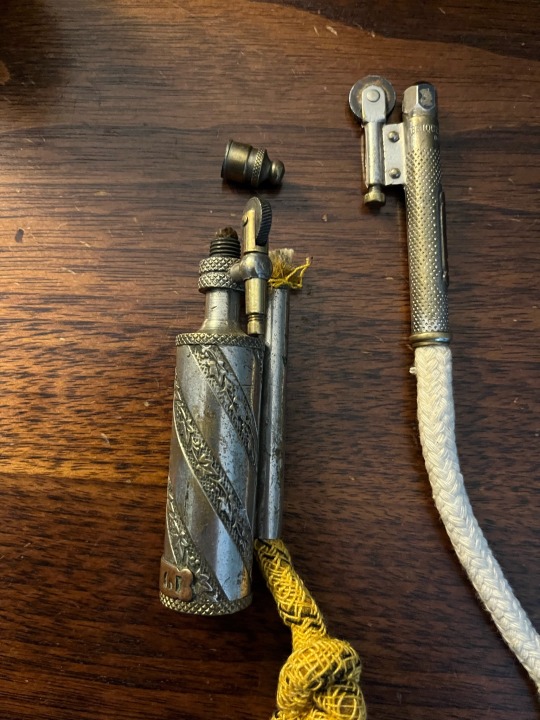

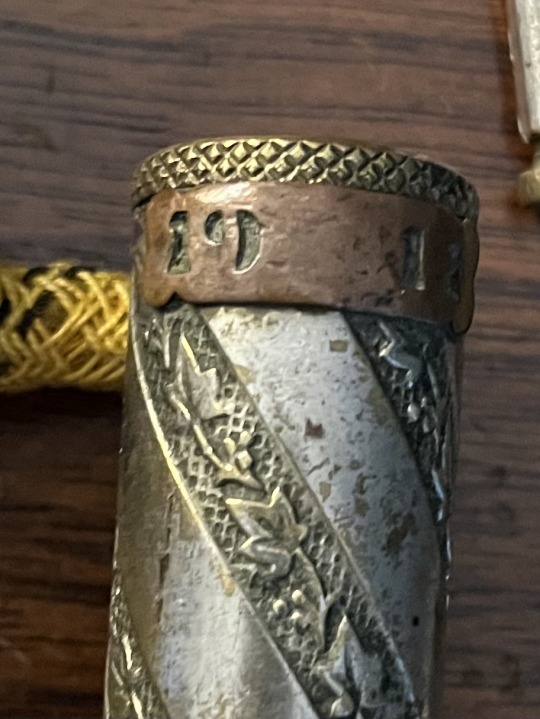
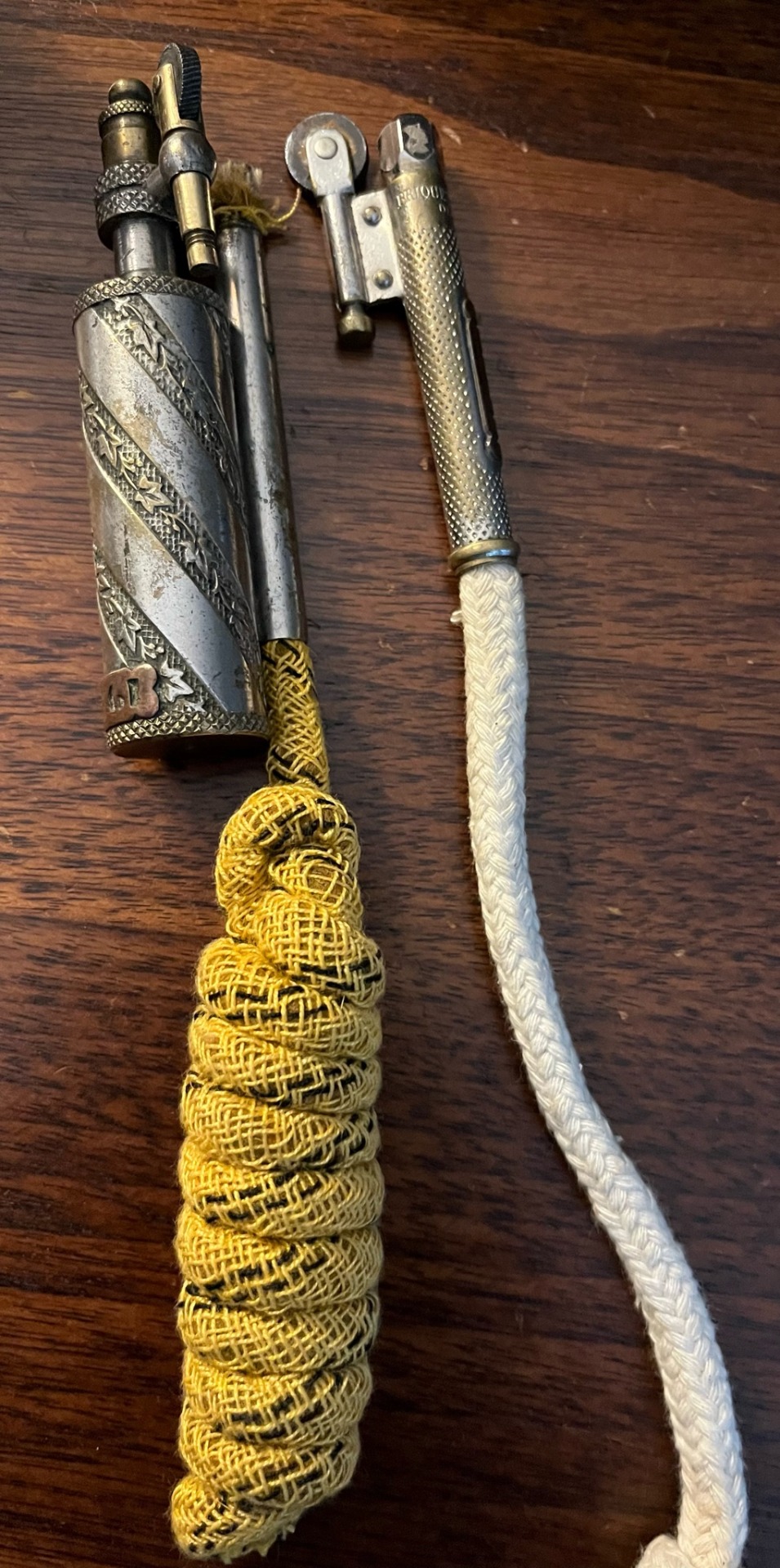


#edc#vintage#antique#fire#smoking#collecting#picker#flame#lighter#zippo#pocket#grunge#punk#steampunk#industrial#ropelighter#trenchart#WW1
3 notes
·
View notes
Text
I have a feeling she might be playing it up for effect, but the way Sharon talks about Bucky also plays into the whole thing of Captain America being used as a propaganda tool by the US government within the MCU. Bucky too would’ve been a part of that.
In the original Winter Soldier comic line, there’s a great moment where Steve talks about the darker side of Bucky in the reality of WWII and fighting HYDRA:

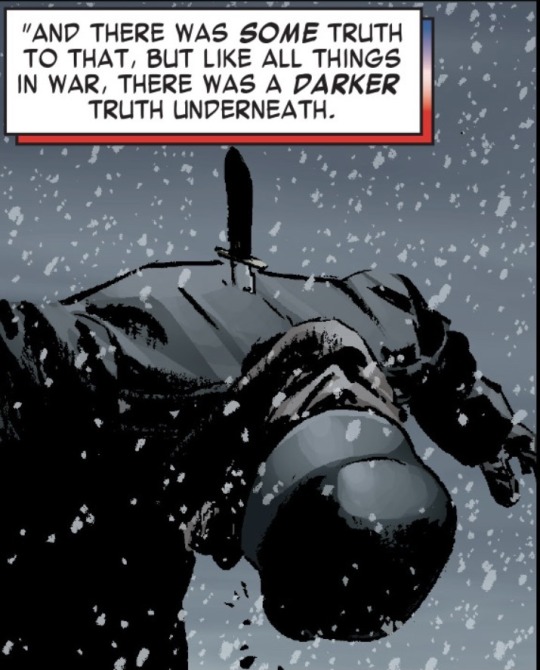
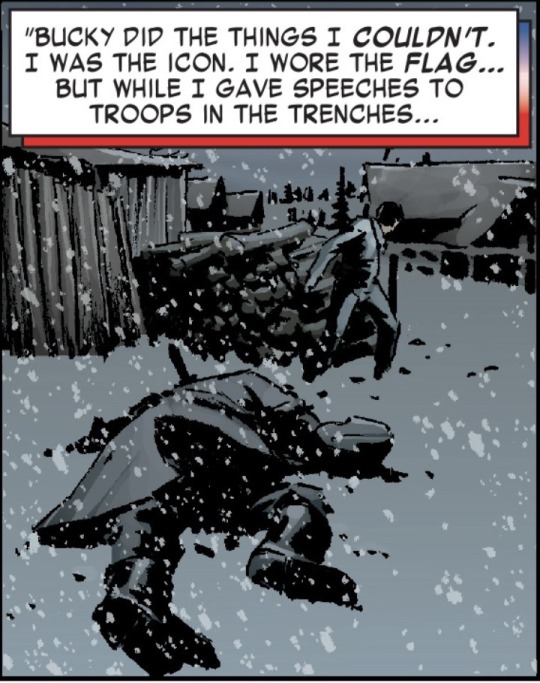

“Which is the real secret of what Bucky was. The official story said he was a symbol to counter the rise of Hitler youth... and there was some truth to that. But like all things in war, there was a darker truth underneath. Bucky did the things I couldn’t. I was the icon. I wore the flag... But while I gave speeches to troops in the trenches... he was doing what he’d been trained to do... and he was highly trained.”
For anyone who might not be as familiar with Bucky in the comics, and I’m not an expert or anything, like I’ve said I only really know the original Winter Soldier line when it comes to Bucky, Steve and Bucky weren’t childhood best friends like they are in the MCU. Bucky was a kid he got paired up with after getting the serum. I don’t remember exactly, it’s been a LONG time since I’ve read the original WS line. But I know he was a kid, and he was used as this icon to basically try and boost American patriotism in young kids during the time period, when in reality he was doing a lot of the more messed up stuff that Steve couldn’t do because of the nature of Captain America and the icon that he was. Bucky was “just a sidekick”, so it was easier to sweep the stuff he was trained to do under the rug. They used him as propaganda the same way Steve was used
And there’s evidence of it in the MCU as well. In the Winter Soldier, when Steve goes to the Captain America exhibit in the Smithsonian, there’s a big memorial display for Bucky, with everyone still believing him to be dead, and the whole thing is practically a constructed narrative made by the people who made the memorial, and not all from the real facts. Here’s a pretty clear picture of the memorial, and I’ll also write out what it says down below:
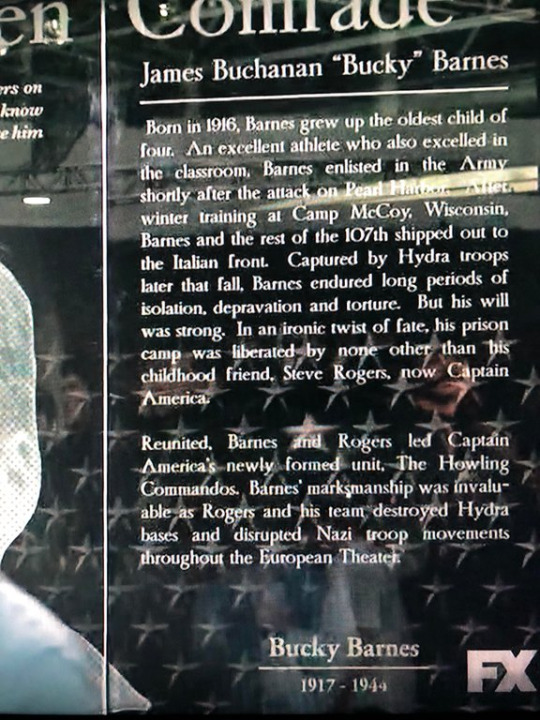
“Born in 1916, Barnes was born the oldest child of four. An excellent athlete who also excelled in the classroom, Barnes enlisted in the Army shortly after the attack on Pearl Harbor. After winter training at Camp McCoy, Wisconsin, Barnes and the rest of the 107th shipped out to the Italian Front. Captured by HYDRA troops later that fall, Barnes endured long periods of isolation, depravation, and torture. But his will was strong. In an ironic twist of fate, his prison camp was liberated by none other than his childhood friend, Steve Rogers, now Captain America.
Reunited, Barnes and Rogers led Captain America’s newly formed unit, the Howling Commandos. Barnes’ marksmanship was invaluable as Rogers and his team destroyed HYDRA bases and disrupted Nazi troop movements throughout the European Theater.”
First of all, there’s a giant contradiction within the text itself (although that’s probably just more of a continuity error or typo and not a propaganda thing). The main text says Bucky was born in 1916, but then down at the bottom, it says 1917 - 1944. (The MCU has also never been super clear on in he fell into the ravine in 44 or 45, but that’s not super relevant.)
It states that he enlisted, and it’s a big fan favorite headcanon that Bucky was drafted, and I actually believe this headcanon to be true. One, because in Sebastian’s performance in Cap 1, nothing about it says to me “Bucky totally wants to do this”. Two, it’s actually supported by historical fact. In WWII, there was a specific system to how soldiers’ ID numbers worked. A newer (and awesome) mutual of mine @maxwyl told me that Bucky’s full ID number is 32557038. According to this Wikipedia article, the first two numbers, 32, signify that he was drafted in the Delaware, New Jersey, and New York area, and seeing as he’s from Brooklyn, it lines up.
Third, the way it mentions how Steve liberated the HYDRA prison camp makes it sound like it was fate, like Steve was just on another mission and Bucky just happened to be there. It completely leaves out the fact that Steve hadn’t been on any sanctioned missions, and I’m fact went against orders and took action into his own hands because he heard that Bucky, his best friend, was being presumed dead along with the rest of the captured 107th.
And also, just the way it says that his “will was strong” through being tortured by HYDRA feels so much like a cliched “they couldn’t break him” type of thing, when in reality he was barely conscious when Steve found him and was probably only able to keep up with Steve during their escape due to adrenaline and just wanting to make sure his best friend survived.
I went off on a tangent there. But anyway, while what Sharon says to Bucky is a clear indicator of that kind of public image being put out of Bucky, I think it’s more her playing it up, mostly due to her proximity to Peggy and her seeming to be a hero to Sharon from the way she talked about her in Civil War.
#bucky barnes#sharon carter#steve rogers#mcu#tfatws#the falcon and the winter soldier#spoilers#spoilers cw#mcu spoilers#tfatws spoilers#the falcon and the winter soldier spoilers#long post#long post cw
85 notes
·
View notes
Note
... Remember the Russian Revolution au? Which ended with Fedyor's sister very sick and Fedyor searching for Ivan in hopes of getting help for her from him? Fedyor finding Ivan and offering to do "anything" in exchange for his sister's medical treatment? Ivan secretly wanting Fedyor, but refusing to take what he wants like that? Soooo... I would also like the big the big 3 of your coming projects to happen, but... y'know... just.... wanted to bring this au up again... ;)
Behold, the oft-requested follow-up to the first two Russian Revolution au ficlets. Ahem.
Fedyor does not sleep that night. He does not even think about sleeping. He only leaves the army headquarters long enough to think hard about what he is proposing to do, wonder if it is worth it, and decide that it is. Katya needs the medicine, he has no other recourse, and he is categorically unwilling to return home to his family as a failure, when they have placed all their trust and hope in him. Ivan has hinted that he might be able to obtain it, and so that, no matter what it takes, is what Fedyor will have to get him to do. And for that…
He knows that he is not unattractive. He has dark eyes, dark hair, a dimpled smile, a personable and friendly manner that, in happier times, attracted the attention of many an eligible young lady who wished to ice skate or promenade around the park or take a carriage ride, as courting Russian couples are wont to do. However, while Fedyor was perfectly happy to chat with ladies, or escort them to a ball, or fulfill his essential chivalric duty, he was not otherwise interested in wooing them. It was partly for that reason that he signed up to the military, where an enterprising young man can have other opportunities in the darkness of the barracks. So long as his family was kept conveniently unaware.
For all that the Bolsheviks have overthrown the government without a clear plan as to what to do next, and accordingly plunged them all into this miserable civil war, Fedyor does secretly sympathize with certain of their beliefs on the remaking of family life. They say that marriage is outdated and bourgeoisie, that monogamy is unnatural, that women should not be subject to patriarchal systems, and that homosexuality is an equally valid state of nature. Such a possibility of sexual classification and divergence is much discussed in Europe these days, and there is even a small but growing scholarly literature, written by eminent scientists. Sexual Inversion by Havelock Ellis, published in 1896, argues that the man-loving man is indeed even a possibly improved form of human, associated with superior intellectual and artistic achievement, and that nothing about his attachment is wrong or abnormal. Two years before that, Edward Carpenter wrote Homogenic Love, and in 1900, the German Elisar von Kupffer published an anthology of homosexual poetry, Lieblingminne und Freundesliebe in der Weltliteratur. Such texts are relatively easy for an educated, French- and English- speaking young Russian intellectual, such as Fedyor Mikhailovich Kaminsky, to lay his hands on. He is not sure what can come of it, but at least he knows that he is not alone.
The question remains as to Ivan Ivanovich Sakharov’s proclivities. Unless Fedyor is very much mistaken, Ivan was at least considering the possibility of accepting his offer, and turned it down for honorable, moral reasons, feeling it unjust to sexually extort a young gentleman in exchange for his sister’s care, rather than physical horror at the idea of such a coupling. If he’s a Bolshevik, he’s probably acceptably tolerant of their philosophy on an abstract level, but it’s less clear as to whether that extends to its personal practice. If Fedyor turns up in his bunkhouse – which, come to think of it, is probably shared, curse these Bolsheviks and their dratted communality, highly inconvenient for a midnight seduction attempt – scantily clad and willing, will Ivan’s objections hold out then? Or… or what?
Fedyor doesn’t know, but the uncertainty adds to the frisson of shameful excitement, rather than detracting from it. He searches through the streets of Chelyabinsk for some bread (it does not seem in much greater supply than in Nizhny Novgorod) and waits for the sun to go down. In March, the days, though getting steadily longer, are still short and chilly, and it’s bitingly cold when it gets dark. Then he pulls up his muffler, tells himself not to be unduly precious about it, and heads for the makeshift army quarters on Kirovka Street.
The buildings in downtown are beautiful, built in the Russian Revival style of neo-Byzantinian splendor, though the onion-domed Orthodox churches have all been converted into stables and armories, and anything that whiffs of an ideology contrary to the Red one has been economically discarded. Fedyor reaches the door, knocks, and when a disgruntled sergeant comes to answer it, expecting him to be a soldier out too late and in line for a ticking-off, Fedyor raises his hands apologetically. “I’ve come to join up,” he says. “The great socialist cause of the world’s workers is the only true one for a patriotic Russian man, and I vow it my full allegiance, if you will have me. I was speaking to my friend earlier, Ivan Ivanovich, and he suggested it. Is he still here?”
The sergeant eyes him squiggle-eyed, but they cannot afford to look gift horses too closely in the mouth, or turn aside willing recruits. It takes a while, but he shouts for someone who shouts for someone else, and this finally produces the startled personage of Ivan Sakharov, who clearly thought it was for the last time when they parted several hours ago. Upon sight of Fedyor, he stops short, looking alarmed, angry, and wary all at once. “What are you – ?”
“Can we talk?” Fedyor is resolved to do this, he truly is, but he feels it best to get it over with before that wavers in any degree. Whether he wants it too little does not seem like the problem; on the contrary, he fears that he wants it too much, and if he stops to reflect on it or delude himself with any nonsensical notions of it being more than once, that can only hurt the cause. “Somewhere… private?”
Ivan hesitates, as if asking to commune out of sight of the others is tantamount to heresy (though it’s not as if these damn hypocrites didn’t plot in secret, away from their own countrymen, for months and months, Fedyor thinks angrily). Then he jerks his head. “Fine. Five minutes. This way.”
He leads Fedyor up a few narrow, creaking staircases, past closed doors that echo with snorting and snoring and coughing, the cacophony of his comrades, none of whom seem to be enjoying their glorious victory quite as much as they thought. Ivan, however, appears to be sufficiently high-ranking in the Red Guards that the room they finally arrive at, though not much larger than a closet, is at least private. It reminds Fedyor forcibly of Ivan’s room back in St. Petersburg, the one they slept in together, that first night after the Winter Palace. It sounds more intimate in his recollections than it actually was. Nothing happened, of course. But Ivan was kind to offer it, kind when he did not need to be, when a young tsarist soldier alone in the ferment of riot and revolution, such as Fedyor was, would not be likely to see the new red dawn. It is that which Fedyor keeps in mind as he shuts the door with assumed casualness, then turns around, meets Ivan’s eye in a significant fashion, and shrugs off his coat, cap, and muffler. Then, unmistakably, starts to unbutton his shirt.
He has almost gotten to the bottom by the time Ivan, who is staring at him as if he’s lost his marbles (it is unclear if this is an encouraging fashion or not) finally recovers his sense. He strides forward and covers Fedyor’s hands with his own large, callused rifleman’s fingers, sending a shock of attraction burning through Fedyor from head to toe, along with the death of any more illusion that he could continue to be casual about this. “What are you doing?”
“Isn’t it obvious?” Fedyor’s throat is as dry as a bone, but he forces himself to speak. “I said that I would do anything for my sister’s care, if you would help.”
He lingers suggestively on the word anything, just as he did before, in case there was any doubt (as if the undressing wasn’t enough) what he means here. Ivan looks like a cornered bear, but as his eyes catch Fedyor’s and flick across the lean, muscled torso thus revealed beneath the shirt, he swallows hard and has to glance away. The attraction trembles silently in the air between them, tense as a piano string, tuned to snapping. In the old days, that is, when people played pianos, and did not burn them for firewood, as Fedyor’s parents were preparing to do with theirs when he left home. It chokes raw and painful in his throat. He is attracted to Ivan – desperately attracted, in fact – and yet he still hates what the Bolsheviks have done, even if the Romanovs and the Provisional Government were no better. The deposed Tsar Nicholas II is under house arrest with his wife and five children, the four tsarevnas and the tsarevich, in Yekaterinburg. Little sick Alexei Romanov, whose hemophilia opened the door for Grigori Rasputin to control the queen, the royal household, the government of Russia, and so bring about the end of their house. He was like something from a fairytale monster, that Grisha. The rumors of his death, not quite two years ago in December 1916, is that it almost did not happen, he was so hard to kill. A demon. A beast.
“You cannot do this,” Ivan says, his voice too rough, his eyes still struggling to remain decorously averted. “It is not – it is not right.”
“Not right?” Fedyor flares. “So a little spot of armed treason and overthrowing the man who, however deficient he might be, was the heir of one of the oldest and greatest empires in the world? That part was entirely aboveboard, but this, when you want this – don’t lie to me, I’m well aware you do – to help my sister? That would be a sin?!”
Ivan backs up a step, glancing around shiftily. These walls are thin, and he clearly does not want his beloved brothers-in-arms to hear this. “Fedyor Mikhailovich – ”
“Have me.” Fedyor is done playing games. “I’m here, I’m yours for the taking. You can do whatever you want to me, as long as you give me the medicine at the end.”
For a long, spellbound moment, he thinks Ivan is on the brink of agreeing. Then once again, he shakes his head. “No,” he says. “I could not in good conscience consent to this. But I will fetch you the medicine. You do not have to give me anything in return.”
Fedyor gawks at him, shocked – and, it must be confessed, more than a little disappointed. “I thought it was fair trade,” he says. “Tit for tat.”
“It is…” Ivan shakes his head, eyes once more straying to Fedyor’s bare chest. “Button your shirt up,” he says, half-laughing, not angry, breathless and soft. “It is very distracting.”
“Good.” Fedyor takes another step. “I think you deserve it, you obnoxious bastard.”
“Be that as it may.” At least Ivan has the good sense not to dispute it. “I cannot do this,” he repeats, more gently. “You are a fine young man, Fedyor Mikhailovich. Perhaps in another life… but it would not be honorable to trade your virtue for this.”
“My virtue?” Fedyor has to laugh. “What makes you think I have that?”
Once again, Ivan wavers. But to give him (loathing) credit, he will not be swayed. “Button it,” he repeats. “I will arrange to have the money and medicine sent by your lodging by tomorrow, if you give me an address in the city.”
“I don’t have one.” Fedyor folds his arms. “Only here.”
Ivan looks even more startled. His lips part, he takes a step forward, and for a brief, wild, exquisite yearning of an instant, Fedyor thinks he is actually going to kiss him. They’re almost close enough – not quite, but almost – for it to happen. Then Ivan says, “Your family must be very proud of you.”
“I…” It catches in his throat. “I don’t know. I hope.”
“I would,” Ivan says. “I would be.”
And that, somehow, is all that seems to matter. Even as Fedyor spends a night in Ivan’s narrow camp cot of a bed, Ivan insisting on taking the hard floor out of an excess of gallantry, an echo of their first night in St. Petersburg. Ivan does as ordered, gives Fedyor some rubles and some medicine and a train ticket back home to Nizhny Novgorod. He personally escorts Fedyor to the train station to make sure he does not come to grief, then stands on the platform, staring after him like Vronsky watching Anna leave one more time. The train begins to huff and puff, spitting soot and embers, and Fedyor keeps his nose pressed to the glass, leaving a smudge, until long after, as it seems he is never destined to do anything but, Ivan Ivanovich Sakharov has vanished into the mist.
34 notes
·
View notes
Note
can you maybe tell us a bit more about the parties in icelandic politics? that is super interesting for me after reading your last post
Well, sure! Please bear in mind that as you may have gathered I am not unbiased, and I'm by no means the most knowledgeable person about this.
Sjálfstæðisflokkurinn (The Independence Party)
Originally founded in 1929, this party's name originally referred to independence from Denmark (achieved in 1944), but today it's just Iceland's dominant right-wing party. On other countries' scales they're fairly center-right in terms of policies; they want a strong welfare system, they're pro-immigration, they're not against LGBT rights, etc. However, they are very much the party of Iceland's rich elite establishment, and in particular have close ties to Iceland's largest corporations, and every other political scandal involves them being varying degrees of terrible, from "Independence Party minister breaking COVID restrictions" to "Independence Party minister in the Panama Papers" to "Independence Party minister's father signs a letter to 'restore the honor' of a convicted pedophile" (these three were all the same minister, who by the way still leads the party and is still finance minister) to "terrible corrupt fishing company Samherji introduced the Independence Party's health minister as 'our guy in the government' at meetings with the Namibian officials they were bribing".
The Independence Party opposes the new constitution, ostensibly because blah blah stability distractions about how changes to the constitution need to be approved through the appropriate process (yes, we know, we want that process to happen), but we all know it's really because the new constitution would have the fishing companies pay a fair price for their access to Iceland's natural resources, and that would be bad for their bottom line. They are also opposed to joining the EU.
The Independence Party has been the largest party in every single Icelandic election since it was founded except the 2009 one (which was right on the heels of another scandal - believe me, I barely scratched the surface above - as well as the 2008 financial crisis), where they managed to dip below the Social-Democratic Alliance with 23.7% of the vote, their lowest parliamentary election result ever. Historically they'd get upwards of 40% or even more of the vote; these days it's more like 25%, and this election's result of 24.4% is their second lowest ever. Even in polls days right after a huge scandal, the lowest I've ever seen the Independence Party poll at was something like 19%; that's why I've said here that 20% of the country will just vote for them no matter what. This means the Independence Party is always the most powerful party, and them not being in the government coalition is very much the exception.
Framsóknarflokkurinn (The Progressive Party)
Iceland's oldest political party, founded in 1916. Originally it was the farmers' party, and they've historically been most popular in rural areas, where they have longstanding loyalty. They're more or less center to center-right. Historically, they've formed coalitions with both the right and the left, but particularly in the past few decades they have been glued to the Independence Party in particular. They have occasional particular pet issues that they latch onto, but overall it doesn't really feel like they stand for much of anything in particular, other than wanting to maintain the status quo and be in government with (preferably) the Independence Party. They are also against the new constitution and the EU.
Vinstrihreyfingin - grænt framboð (The Left-Green Movement)
Founded in a 1999 split on the left, the Left-Greens are a left-wing party with a focus on equality and the environment, but with enough of a semi-conservative bent to have some common ground with Independence and Progressives on matters like opposing EU membership and being hesitant about the Constitutional Committee's draft constitution. A lot of their voters were very unhappy with them entering into the current coalition with the Independence Party and the Progressive Party (the former in particular); two of their MPs actually left the party after that decision, reducing but not destroying the government's majority.
Samfylkingin (The Social-Democratic Alliance)
Founded in 2000 as a fusion of two parties (hence the 'alliance'), the Social-Democratic Alliance is a center-left social democratic party. They were very popular in the early 2000s, almost rivaling the Independence Party for votes, and formed a coalition government with Independence in 2007, which oversaw the 2008 financial crisis; initially people mostly blamed the Independence Party, allowing the Alliance to become the biggest party in the 2009 election with 29.8% of the vote, but as the following coalition with the Left-Greens had to deal with the fallout of the recession, a lot of anger was directed at the Alliance too, and the party has never managed to recover since, instead hovering between 5-15% of the vote (but still stands strong in some municipal elections and currently leads the Reykjavík city council). They want to join the EU and ratify the new constitution.
Píratar (The Pirate Party of Iceland)
You may have heard of Pirate Parties before, originating with the Pirate Party of Sweden. Iceland is the only country where the Pirate Party has actually managed to get elected to the national parliament, and is an entirely serious political movement. At one point after the revelation of the Panama Papers, the Pirate Party was miraculously polling at 43%; sadly, by the time there was an actual election they'd gone down to 15%. Their primary concerns are transparency, democracy, privacy, human rights and freedoms, and "no bullshit", and among other things they want to establish a universal basic income. A lot of its founders were computer scientists and geeks of various stripes.
They refuse to be classified on the left-right scale, but in practice, their policies are strongly aligned with the leftier parties (one popular website comparing the parties on concrete policy questions for this election classed them as having 90% agreement with the Social-Democratic Alliance, 87% with the Socialists, and 83% with the Left-Greens). They are strongly in favor of ratifying the new constitution.
Miðflokkurinn (The Center Party)
After the 2008 financial crisis, the Progressive Party gained a more populist bent, led by Sigmundur Davíð Gunnlaugsson, who was prime minister from 2013 until 2016 when he was implicated in the Panama Papers. He was reluctant to resign as prime minister and fully intended to stay as the leader of the party, until the party chose to boot him and replace him with current Progressive leader Sigurður Ingi Jóhannsson; Sigmundur Davíð went off to form his own party instead, the Center Party, and took the populist arm of the Progressive Party with him. They're where most of the anti-immigration and anti-LGBTQ vote goes, and along with the People's Party, some of their MPs were implicated in "Klausturgate", a scandal where a disabled woman at a bar overheard and discreetly recorded several MPs (including Sigmundur Davíð) who were drinking together while making a variety of sexist, homophobic and ableist comments about named people including members of their own parties. The Center Party was perfectly happy to keep them on board, which really says all you need to know.
I am unendingly disappointed that the Center Party managed to scrape past the 5% threshold to get parliamentary seats this election; for a glorious moment the early numbers looked like they wouldn't. Last election they managed to get seven MPs, and then the two guys from the People's Party involved in Klausturgate joined up with the Center Party too, giving them nine, so seeing them reduced to almost nothing was still deeply pleasing.
Viðreisn (The Reform Party)
A center-right party that split off from the Independence Party in 2016, largely over the latter's opposition to the EU, while the Reform Party supports EU membership, but also because of the endless scandals, cronyism, etc. The Reform Party instead claim to be proponents of "ethical capitalism" and have so far avoided the major scandals and general douchebaggery of their parent party.
Flokkur fólksins (The People's Party)
A populist party with a primary emphasis on eradicating poverty, especially for the elderly and disabled, letting the nation reap the benefits of our fish instead of the few large fishing companies, funding health care to reduce wait times, and so on. All this is lovely in theory, but unfortunately their rhetoric then goes off into pitting the poor/elderly/disabled against immigrants, Muslims, etc. Chairperson Inga Sæland seems totally well-meaning to me off what I've seen of her (disclaimer: have not actually seen that much), but it also contains less savoury people and sentiments, as seen by two of their MPs being part of the aforementioned Klausturgate. To the party's credit, they did expel those guys, but it's not the only example of the party attracting questionable people.
Sósíalistaflokkur Íslands (The Icelandic Socialist Party)
A hardline democratic socialist party founded in 2017, with this as their first parliamentary election. It looked like they would get MPs in polls, but in the end they didn't. They're led by Gunnar Smári Egilsson, one of the original founders of free newspaper Fréttablaðið, and have a much more radical left rhetoric going on than the other lefty parties, focusing on economic equality, housing, free health care, and a shorter work week. They made some pretty controversial remarks campaigning for this election, such as suggesting replacing all the judges of the Supreme Court if they won't agree to changing the fishing quota system (the argument being that the Independence Party appointed all the judges in an organized bid to maintain the current system), but who knows if that dampened their following or something else. They also want to ratify the new constitution.
14 notes
·
View notes
Text
Metal Fingers

A/N 1: This fic is for my lovely beta/bestie @wowjeena Heyyo, would you be up to writing a soulmate au with Bucky? You can choose which type of soulmate au but can you make the reader a normal person (so not an Avenger or anything related)?? Thanks girl and if you don’t wanna that’s chill 👉🏼👉🏼 So... it’s not exactly a soulmate au, but I hope this is okay instead ☺️💜💜 I’m also so sorry it took so long. I hope you like it, my dear.
A/N 2: The Bucky Barnes Exhibit states he was born in 1916, but at the bottom where it gives his life span, it says he was born in 1917. I googled it to find the correct year, and it said 1917… I don’t know what to do with that information, other than to tell you guys there’s a mistake in the movie.
A/N 3: I apparently couldn’t make this a one shot, so it’ll be a multi part story. I’m aiming between 3-5 parts
Pairing: Bucky Barnes x single mom!reader
Warnings: None
Word Count: 1.5k+
~~~
Part 1
A Fallen Comrade.
James Buchanan ‘Bucky’ Barnes
Born in 1916, Barnes grew up the oldest child of four. An excellent athlete who also excelled in the classroom. Barnes enlisted in the Army shortly after the attack on Pearl Harbor. After winter training at Camp McCoy, Wisconsin, Barnes and the rest of the 107th shipped out to the Italian front. Captured by Hydra troops later that fall, Barnes endured long periods of isolation, deprivation and torture. But his will was strong. In an ironic twist of fate, his prison camp was liberated by none other than his childhood friend, Steve Rogers, now Captain America.
Reunited, Barnes and Rogers led Captain America’s newly formed unit, The Howling Commandos. Barnes’ marksmanship was invaluable as Rogers and his team destroyed Hydra bases and disrupted Nazi troop movements throughout the European Theater.
He knew these words. He read and reread them dozens— if not hundreds— of times. He wrote them down in every one of his notebooks as he was scrapping, searching for his memories that were just out of his reach. He could nearly taste them. They fluttered teasingly in front of him: close, but not close enough for him to snatch out of the air of uncertainty.
He pulled a fresh notebook from his bag and a pencil, worried away from teeth and words.
Start with what you know…
My name is James Buchanan Barnes. I was taken captive by Hydra and was used by them. I know a man named Steve. He was my friend.
He trailed off. This is where he always was left floating in a sea of not knowing. He was left grasping for more. He was a starved man, empty without his memories. The few he managed to uncover did little to tide him over from insanity. He bit at that familiar indentation on his pencil, trying to think of something, anything at this point that was more than those four simple sentences he’s written everyday for the past several weeks. Sighing and pulling his baseball cap lower in frustration, Bucky returned his supplies to his bag, stood, and swung it over his right shoulder. Eyes low, and clutching his bag, Bucky made his way towards the exit of the crowded museum. Ever since the Potomac, this section of the Smithsonian was more packed than usual.
Nearly there. Nearly there.
It was an understatement to say that Bucky Barnes didn’t like crowded areas. Too many bodies, pressing, and pushing against each other, loud noises, pointless conversations discussing mundane things.
Nearly there. Nearly ther—
“Oof!”
He wouldn’t have noticed the boy that ran into him if his bag hadn’t slipped from his hand, spilling out the contents onto the floor. Bucky hurriedly crouched to retrieve his precious memories. He barely registers the boy picking up the items that had strayed a bit further.
“Here you go Mister! I’m sorry for bumping into you like that.”
Bucky silently takes his belongings back from the little boy standing in front of him.
Bucky unintentionally begins to analyze him.
Probably seven or eight. Bright eyes. Tousled hair. Skinny. Doesn’t clear 100 pounds soaking.
He shakes his head. Stop. No more.
“Whoa, cool! Metal fingers!!”
Bucky quickly retracts his fingerless-gloved hand.
The boy pulls his hand from his sweatshirt pocket. “Yours are cooler, but I have metal fingers too! Well, actually it’s a metal arm because the doctors had to get rid of my real one because I got hurt super bad, but I think it’s really cool.”
The boy said this all extremely fast, Bucky had to blink a few times to register what he had said. A compliment? For his hand? A hand that’s maimed, killed, and caused so many people to suffer?
“Uh… I… I have a metal arm too.”
The little boy’s eyes widened even more. He wasn’t sure what made him do it, but Bucky took off his glove and showed it to the boy.
He took Bucky’s hand in his and stared at it, looking back and forth at Bucky’s hand and his. Bucky stood there stiffly, unsure how to respond. The boy looked up at Bucky solemnly.
“Do you have super powers?” he whispered.
Bucky couldn’t help but crack a smile at his seriousness, but before he could answer, a woman came running through the crowd.
“Noah!”
The boy turned to give her a lopsided grin. “Hi Mom!”
“How many times have I told you to stay by my side, young man?”
The boy, Noah, dropped Bucky’s hand and took a step closer to the woman. “Sorry. But Mom!”
A raised brow silenced Noah. The woman looked up at Bucky.
“I’m so sorry if he was bothering you. He’s very social.”
Bucky forgot how to speak for a minute. The woman standing in front of him was… well, he’d never seen anyone as beautiful as her. Bright, sparkling eyes confirming where Noah got his from, a soft voice, and a sweet smile.
“Oh, uh, no. I mean, he is. I mean‒” When was the last time he had gotten tongue-tied?
Bucky cleared his throat, forced himself to try to ignore the sweet smile that was widening, and tried again. “He wasn’t bothering me. We were just talking about‒”
“His metal arm! Look at it, Mom!” Noah hurries back to Bucky’s side and holds his mechanical hand. “Look how awesome it is! And it’s huge!” He started poking Bucky’s upper arm and gasps. “And so are his muscles!! I bet he could crush anything!”
Noah began miming picking up heavy objects or crushing imaginary things, complete with sound effects. Bucky doesn’t miss Noah’s mother’s eyes widen slightly when Noah pointed out how massive his biceps are.
“Noah, honey, why don’t we go check out the exhibit?”
“Oh yeah! Let’s go, Mom!” He nearly takes off again before giving his mother a sheepish smile.
“What did you do?”
“I… I turned our map into a paper airplane.”
“And?”
“And... it… flew out of my hands?”
“Mm hmm. I see. Well, I guess we’ll just have to come back another time.”
Noah gasps and clutches his mom’s hand. “No! Please Mom! Don’t do this to me!!”
Her laugh causes Bucky’s heart to skip a few beats, and it frustrates him that he doesn’t know why.
“Which exhibit are you looking for?”
Noah looks at Bucky and salutes. “We’re here to see the Mister Captain America exhibit.”
“I could take you guys there.”
What. On earth. Gave him that idea?!
“Woo! Let’s‒”
Noah’s cheer was cut off by his mother. “Oh, no that’s okay. I’m sure you’re busy and you probably have something to get to you.”
She’s right… Why did I even offer in the first place? I can’t‒
“It’s not a problem. I was heading over there right now actually.”
Jesus! What’s wrong with me?
Noah grabbed his mother’s hand and followed Bucky to the famed exhibit.
~~~
“So, I take it Noah’s a fan of the Captain?”
The beautiful lady standing next to him nodded. “Yeah, Noah loves him; really looks up to him.”
“Makes sense, he’s a good guy.”
“Sounds like you’ve met him before.”
“You could say that.”
They were pulled away from their conversation when Noah ran up to them, grinning.
“Mom! Look how skinny Steve was! And, and his friend? Um… Bucky? Yeah! Bucky! He would always help Steve out because Steve would always get in fights! So Bucky would come and have to save him!”
Noah then proceeded to animatedly tell his audience how Steve became the Captain and fought in the War. When he went to go read the display in front of Steve’s motorcycle, Bucky turned back to the woman.
“Is this his first time here?”
She nodded and smiled. “I promised I would take him when I had a day off. He’s been waiting for weeks.”
A pause.
“How ‘bout you?”
“What?” Damn that smile! He got distracted.
“I take it this isn’t your first time here?”
“No, ma’am.”
Her giggle caused his firm expression to slip into a small smile.
Bucky spent the rest of the afternoon showing Noah around. He learned that Noah and his mother had been in a terrible car accident two years before. The injuries Noah sustained to his right arm were irreversible, thus leading to an amputation, a prosthetic arm, and even though she didn’t say, expensive medical bills burdened on his mother.
When the museum closed, Noah was asking his mother when they’d be able to return.
“I’m not sure baby. How about next weekend?”
Noah did a little dance showing his affirmation. Then he looked at Bucky.
“Will you be here too, Mr. James?”
“Uh, yeah sure kid. I’ll be here.”
Noah fist pumped as his mother said goodbye to Bucky.
~~~
Holy shit. Holy shit!
You had been trying to keep your cool ever since you found Noah with James. You were eating dinner and you still hadn’t gotten over him. That man was fucking stunning. Blue, blue eyes that were filled with such sorrow, a smile that made your insides flutter, and a deep voice you were willing to listen to for hours on end. Soft and sonorous. And he was so sweet and kind with Noah. That alone had you taking a liking to him.
“Mom?! Mom!”
“Oh— sorry, baby. What’s wrong?”
“Thanks for taking me to the museum.”
You ruffle his hair. “Thanks for being so patient for me.”
He smiles as he shovels pasta into his mouth.
~~~
My Ride or Die:
@lehuka123 @thejournalman @myraiswack @loki-yoursaviourishere @rebloggingeverything @just-the-hiddles @confetti-its-an-imagine-blog @thehumanistsdiary @fanfictionaries @astheworlddturns @bbarnestan @buckyfan12
#bucky fic#bucky barnes#bucky fluff#Bucky Barnes fic#Bucky x you#Bucky Barnes x you#Bucky Barnes fluff#bucky x single mom#Bucky Barnes x single mom#bucky x y/n#bucky barnes x y/n#Bucky fanfiction#Bucky Barnes fanfiction#Metal Fingers#thea writes#Metal Fingers part 1
109 notes
·
View notes
Text
ww1 au, they're all anzacs (so australian/nz soldiers) and it's written in an epistolary style, so as letters sent by each of the links to people back home over the course of a month or so, during 1916 in the leadup to the battle of fromelles (aka australia's first big battle in france post-gallipoli). it's partially because it gives me some interesting characterisations to work with (eg sky being from the middle class while hyrule is from the working class, four living in sydney vs wild living in woop woop, etc), and partially because the social developments during that period are fascinating to me; the everyday aspects of life in the trenches is both interesting and incredibly bleak, and ww1 specifically is such a massive part of australian history and I want to write more about it in the future, so this is where i'm starting! the links also all have,,,other names (like, different first names related to their nickname)
the full list of everyone's backgrounds:
Sky; engaged to Sun, lived in Melbourne pretty close to her and was studying maths at university. wants to become a pilot after he saw a plane for the first time. he grew up in the blue mountains but moved to melbourne when he was around ~13, which is when he met sun. enlisted during the gallipoli campaign but didn't go to gallipoli. got his nickname from the plane thing.
Time: married to Malon, they live in rural NSW and own a small-ish property, which malon is maintaining with her family's help. he enlisted around the same time sky did. the unit's resident Dad. He's the oldest in the unit. got his nickname based off the fact that he...somehow has a pocket watch that still works??? no one knows how tho. it's just. there. he also plays like six instruments and has a nice bass voice.
Warriors/Wars: lived in regional-ish victoria (geelong), was regular army. was in gallipoli, he's the highest rank of the unit (captain). got a promotion as he was the only surviving member of his last unit (at gallipoli). at this point, he just really wants to go home. has an 'understanding' with sheik but no one,,,really gets whats going on with them. got his name because, well...he's a soldier
Legend: lived in sydney. bastard child, sister of his zelda (fable, I think? the zeldas are harder to keep track of). he's...chill. wasn't at gallipoli but he's also, like, been a soldier longer than most of them, coz he signed up in 1914. got his name coz he somehow managed to sneak a small book of greek myths (it was actually a copy of the illiad) to the front. how? no one knows.
Four: lived in Adelaide, worked in a factory as an engineer, pretty chill. got his name coz he keeps complaining about having four siblings. the unit's resident stem kid. about 19, shorter than everyone.
Wind: lived in Cairns, helped out on fishing boats, lied about his age to enlist (is 15 turning 16 in july, the fic starts in early june). got his nickname because he was born in wellington, nz, which is famously windy. also because of the fishing thing. has a kiwi accent. writes to his sister but also sorta to tetra (and by that I mean that he,,,leaves it in the postscript)
Twilight: farm hand, grew up in rural nsw and worked on time's farm before he enlisted. was in gallipoli but not for as long as the others who were there. got his nickname bc one day they got leave and he made them watch the sunset and said some Sappy Stuff. he's good with animals and keeps talking about how he wanted to join the cavalry. Also had a dog back home named Wolfie that is definitely not part dingo. Writes to Midna, who's his childhood friend and also...sort of sister? he's her father's ward, before he left to work.
Hyrule: grew up in (modern) Melbourne (for anyone curious, around where Cragieburn is), wanted to be a doctor but thats expensive so he settled for learning local medicine and helping out where he could. Still better at first aid than anyone else in the unit. Nickname came from a fantasy novel he talked about a lot, apparently given to him by one of his friends (one of his zeldas, idk their nicknames). he's the most recent arrival.
Wild: grew up in rural NSW, around Kosciusko. Nicknamed because he's definitely most knowledgable about actually surviving in the wilderness. was a stablehand/sometimes shearer on his zelda's/flora's family's farm and has a...thing with her. was in gallipoli, didn't have a great time. has facial scars from a fire he was in as a kid. He's used to going hungry. one of the younger ones (signed up when he was 17).
I have been hyperfixating on legend of zelda for like the past week and now im learning embroidery to possibly one day make a botw!link cosplay help me its getting too strong
then I found linked universe and help now im writing a historical au for it
118 notes
·
View notes